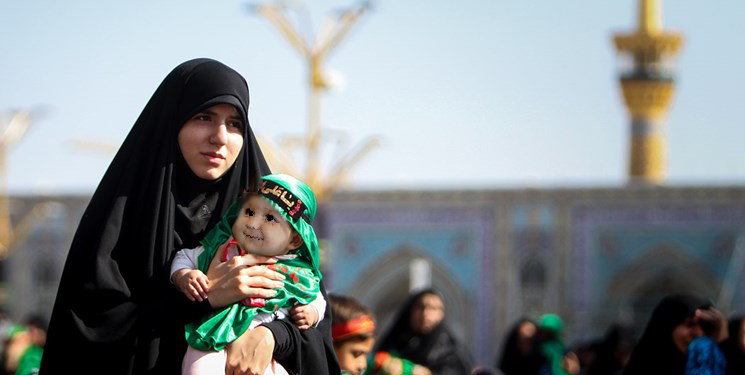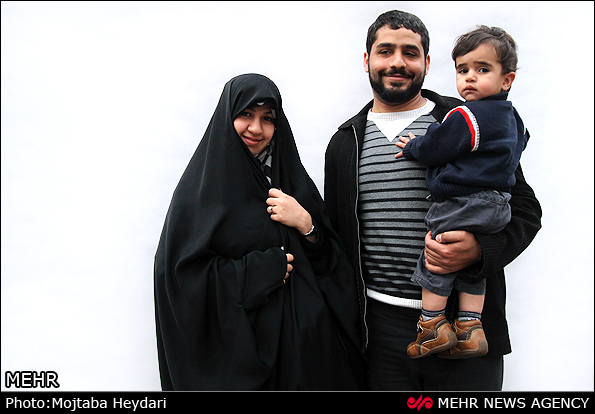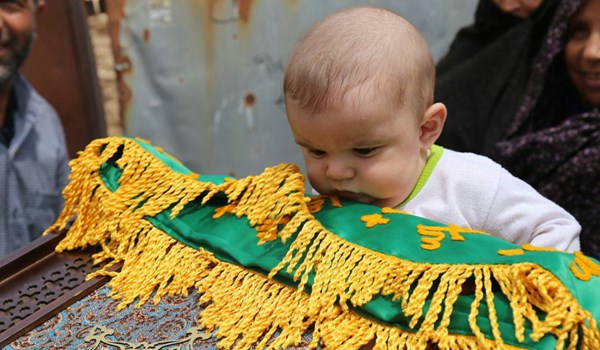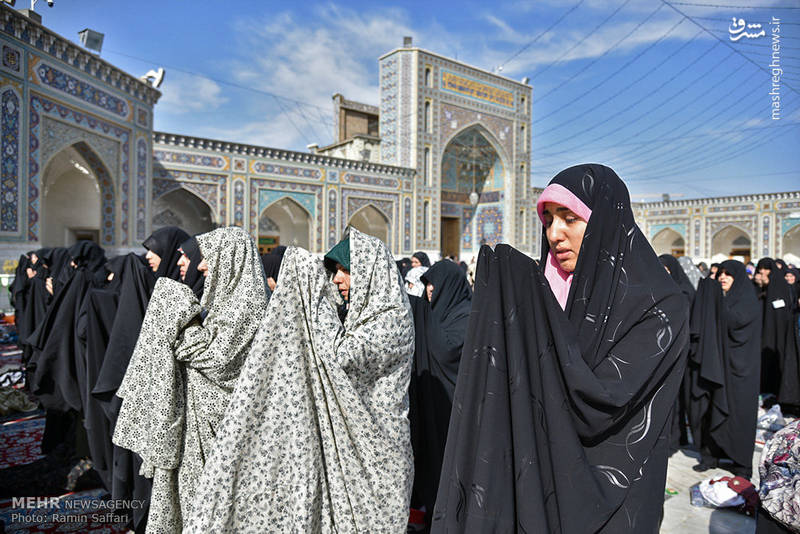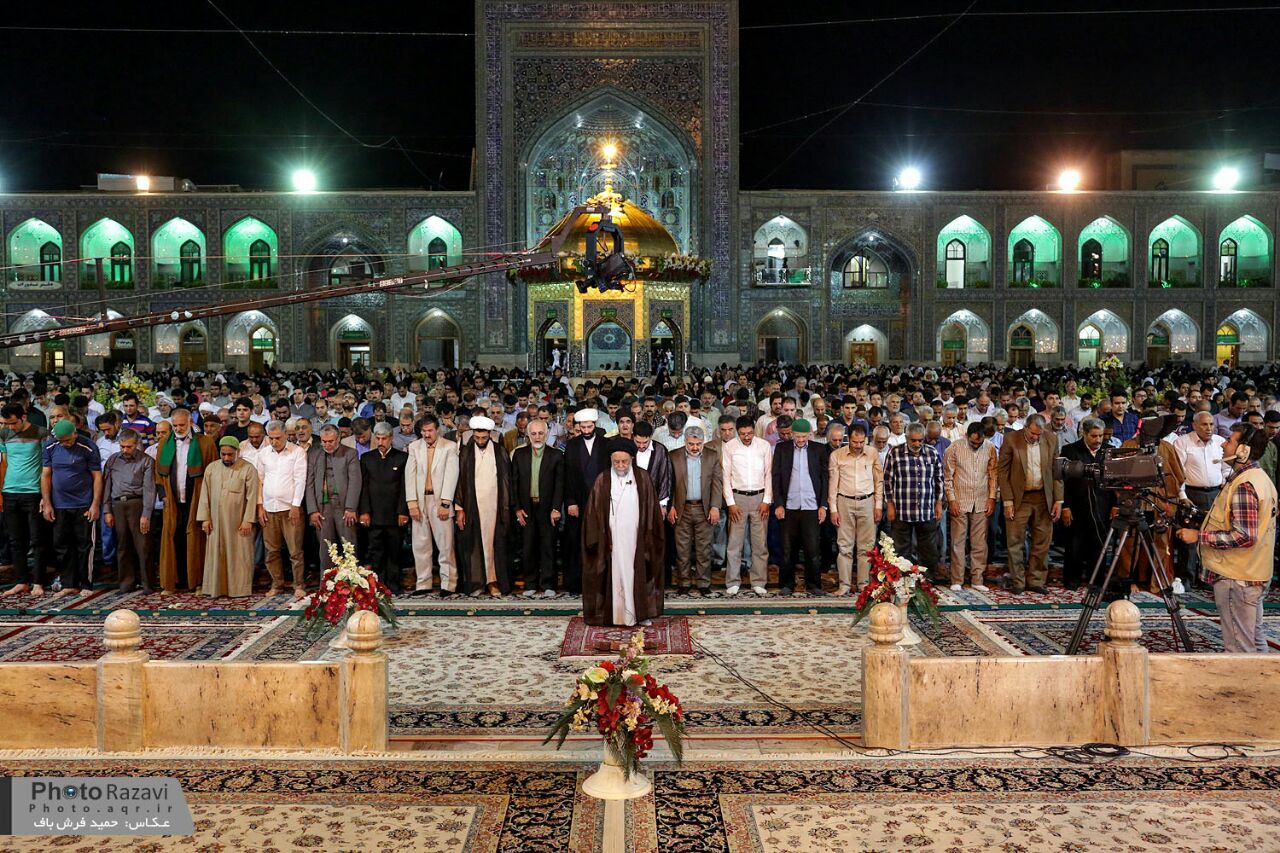حکمت گرافی
حکمت گرافی نهج البلاغه. صحیفه سجادیه. ادعیه. احادیث و...حکمت گرافی
حکمت گرافی نهج البلاغه. صحیفه سجادیه. ادعیه. احادیث و...نهج البلاغه حکمت 66
نهج البلاغه
حکمت 66
وَ قَالَ علیه السلام فَوتُ الحَاجَهِ أَهوَنُ مِن طَلَبِهَا إِلَی غَیرِ أَهلِهَا
و درود خدا بر او، فرمود: از دست دادن حاجت بهتر از درخواست کردن از نا اهل است .
Imam Ali ibn Abu Talib said :
“ To miss what one needs is easier than to beg the wrong person.”


نهج البلاغه حکمت 65
نهج البلاغه
حکمت 65


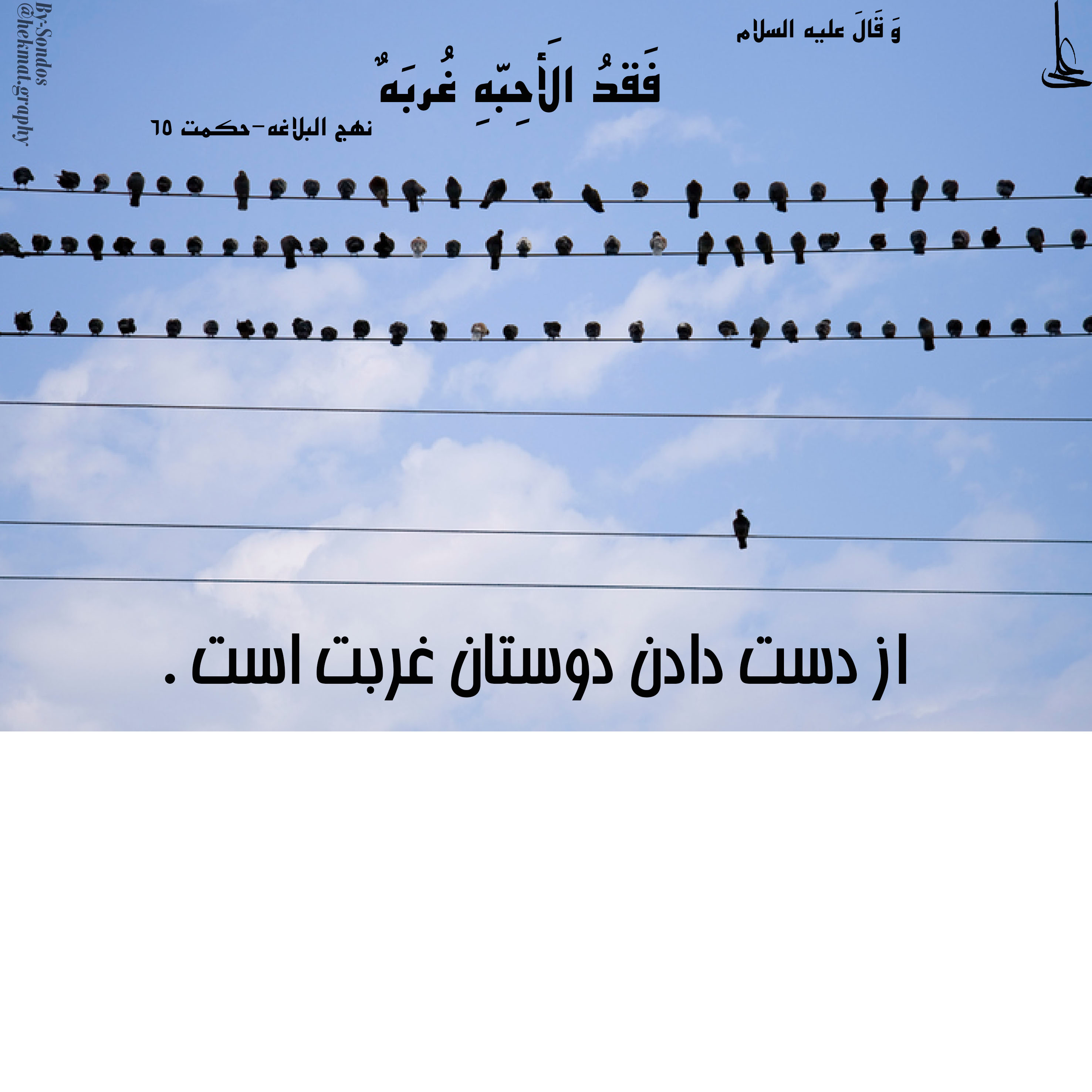

وَ قَالَ علیه السلام فَقدُ الَأحِبّهِ غُربَهٌ
و درود خدا بر او، فرمود: از دست دادن دوستان غربت است
Imam Ali ibn Abu Talib said :
The loss of friends is estrangement.
نهج البلاغه حکمت 64
نهج البلاغه
حکمت 64
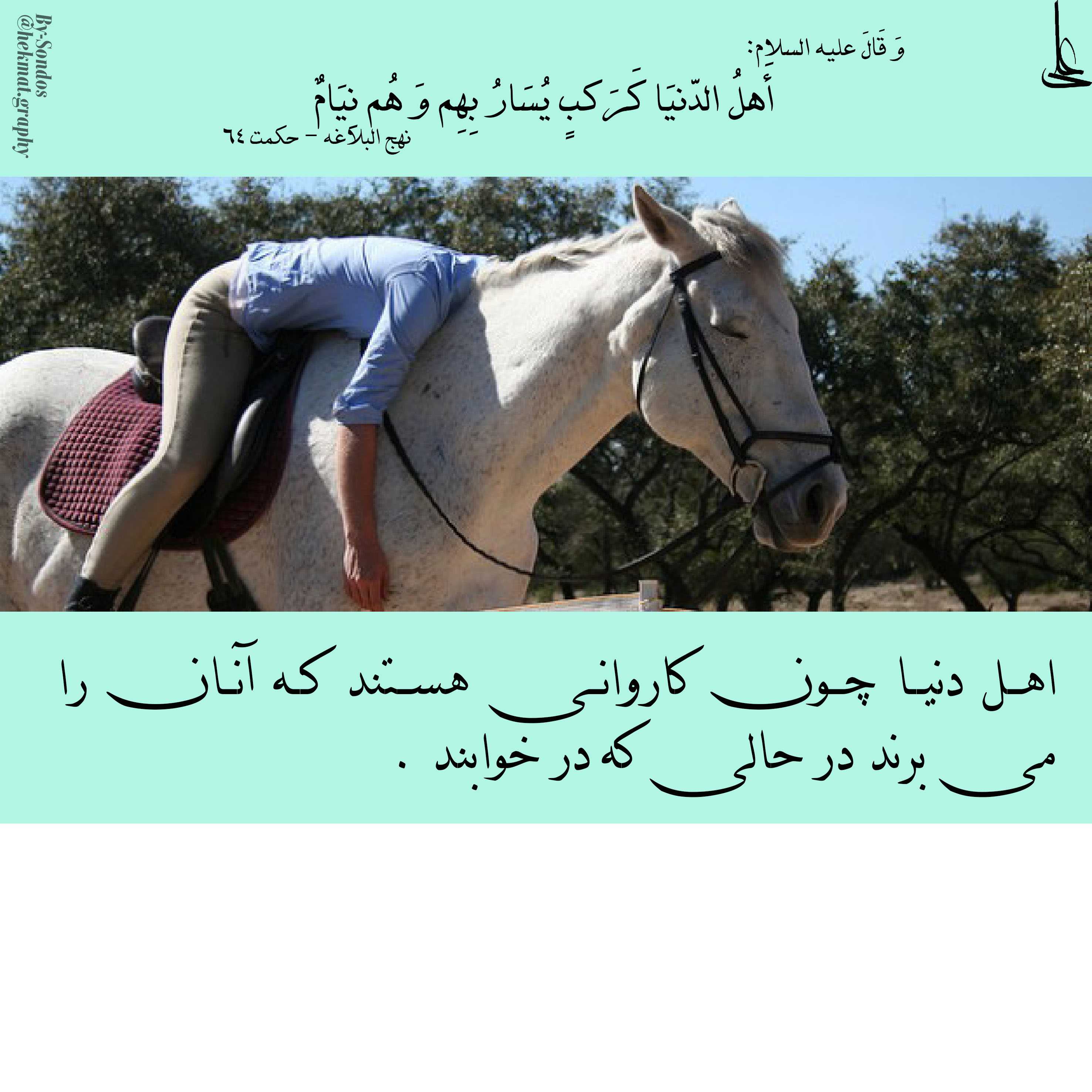
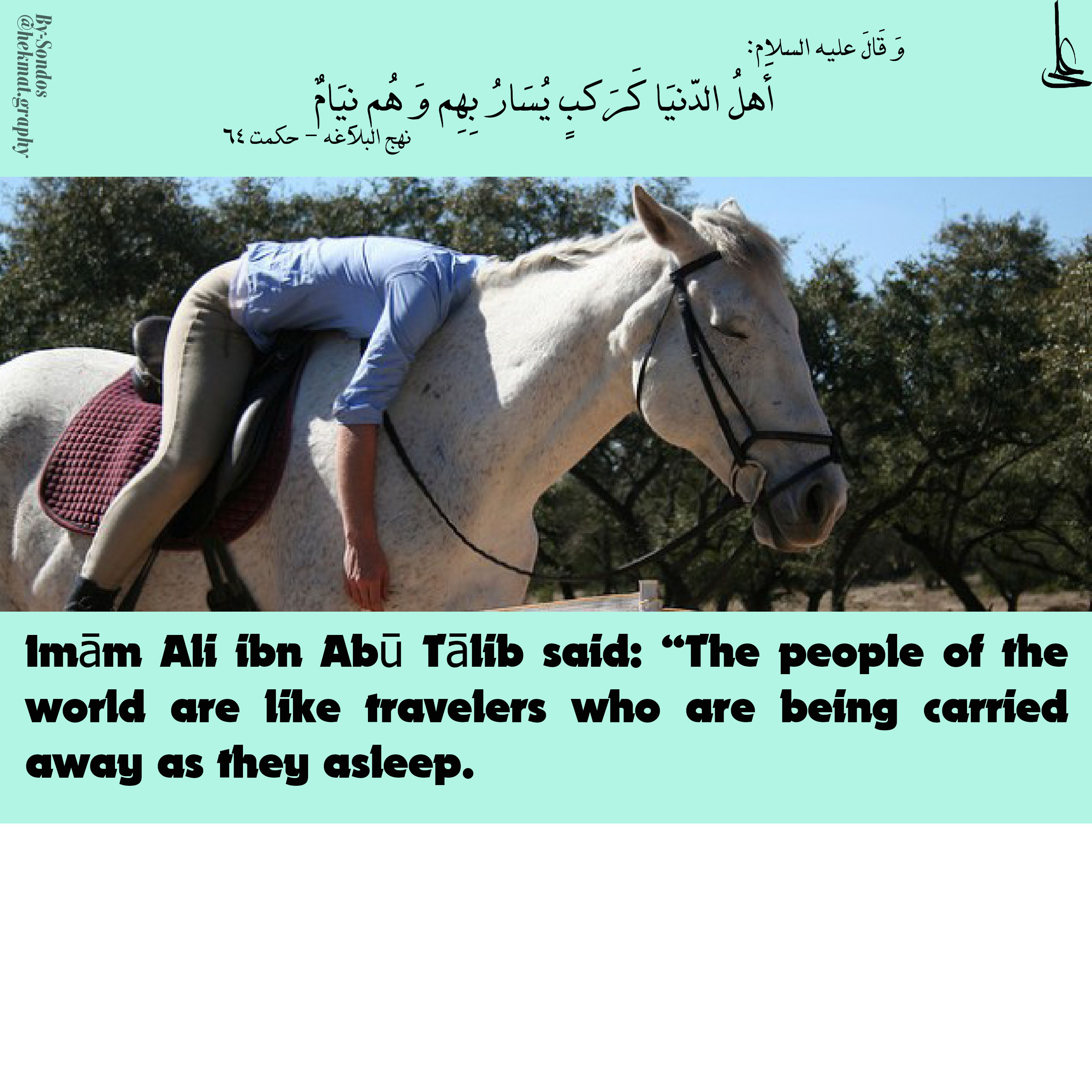


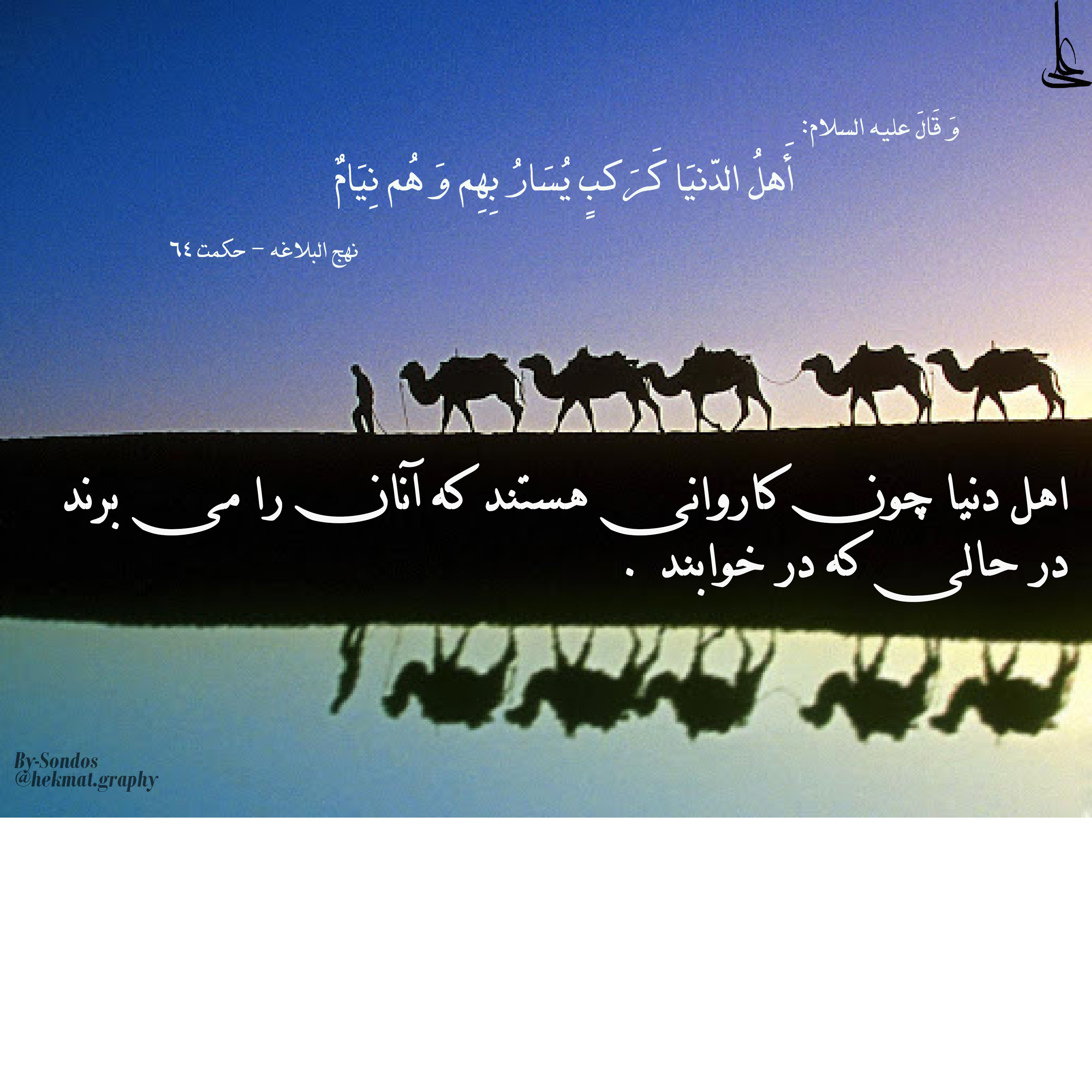

وَ قَالَ علیه السلام أَهلُ الدّنیَا کَرَکبٍ یُسَارُ بِهِم وَ هُم نِیَامٌ
و درود خدا بر او، فرمود: اهل دنیا سوارانی در خواب مانده اند که آنان را می رانند .
Imām Ali ibn Abū Tālib said:
The people of the world are like travelers who are being carried away as they asleep.
نهج البلاغه حکمت 62
نهج البلاغه
حکمت 62
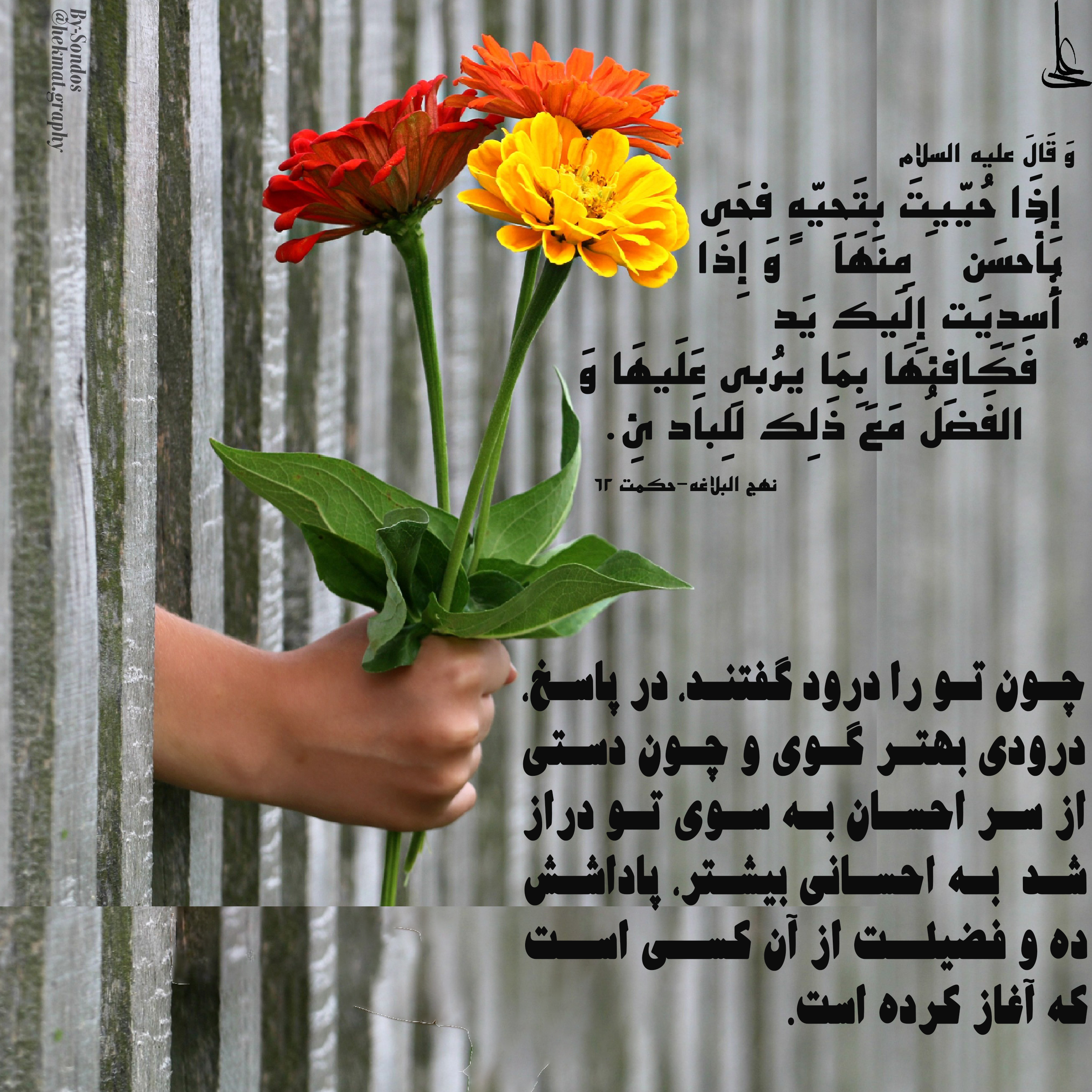
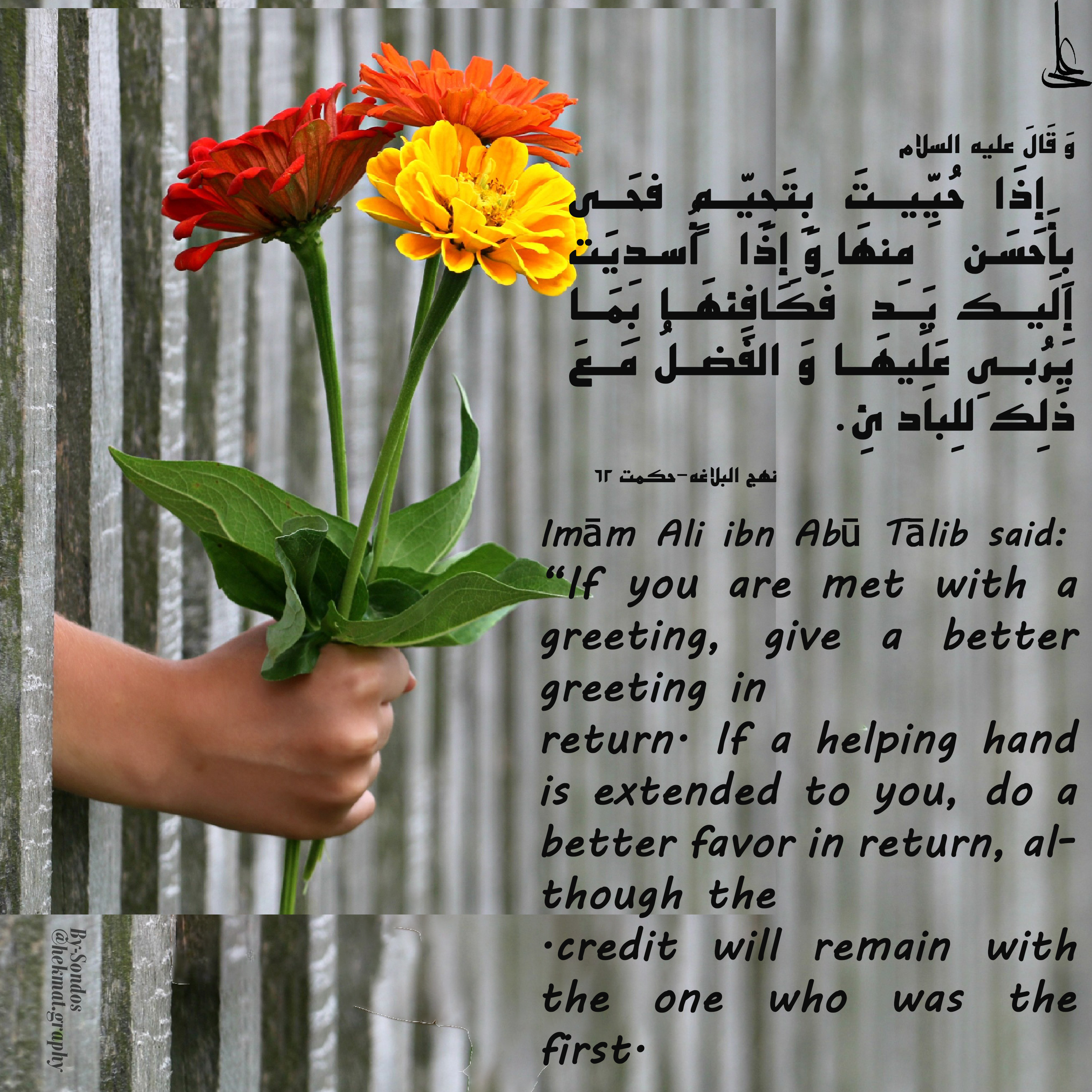


وَ قَالَ علیه السلام إِذَا حُیّیتَ بِتَحِیّهٍ فحَیَ بِأَحسَنَ مِنهَا وَ إِذَا أُسدِیَت إِلَیکَ یَدٌ فَکَافِئهَا بِمَا یرُبیِ عَلَیهَا وَ الفَضلُ مَعَ ذَلِکَ للِباَد ئِِ
و درود خدا بر او، فرمود: چون تو را ستودند، بهتر از آنان ستایش کن ، و چون به تو احسان کردند، بیشتر از آن ببخش. به هر
حال پاداش بیشتر از آن آغاز کننده است .
Imām Ali ibn Abū Tālib said:
“If you are met with a greeting, give a better greeting in return. If a helping hand is extended to you, do a better favor in return, although the credit will remain with the one who was the first.
نهج البلاغه حکمت 60
نهج البلاغه
حکمت 60
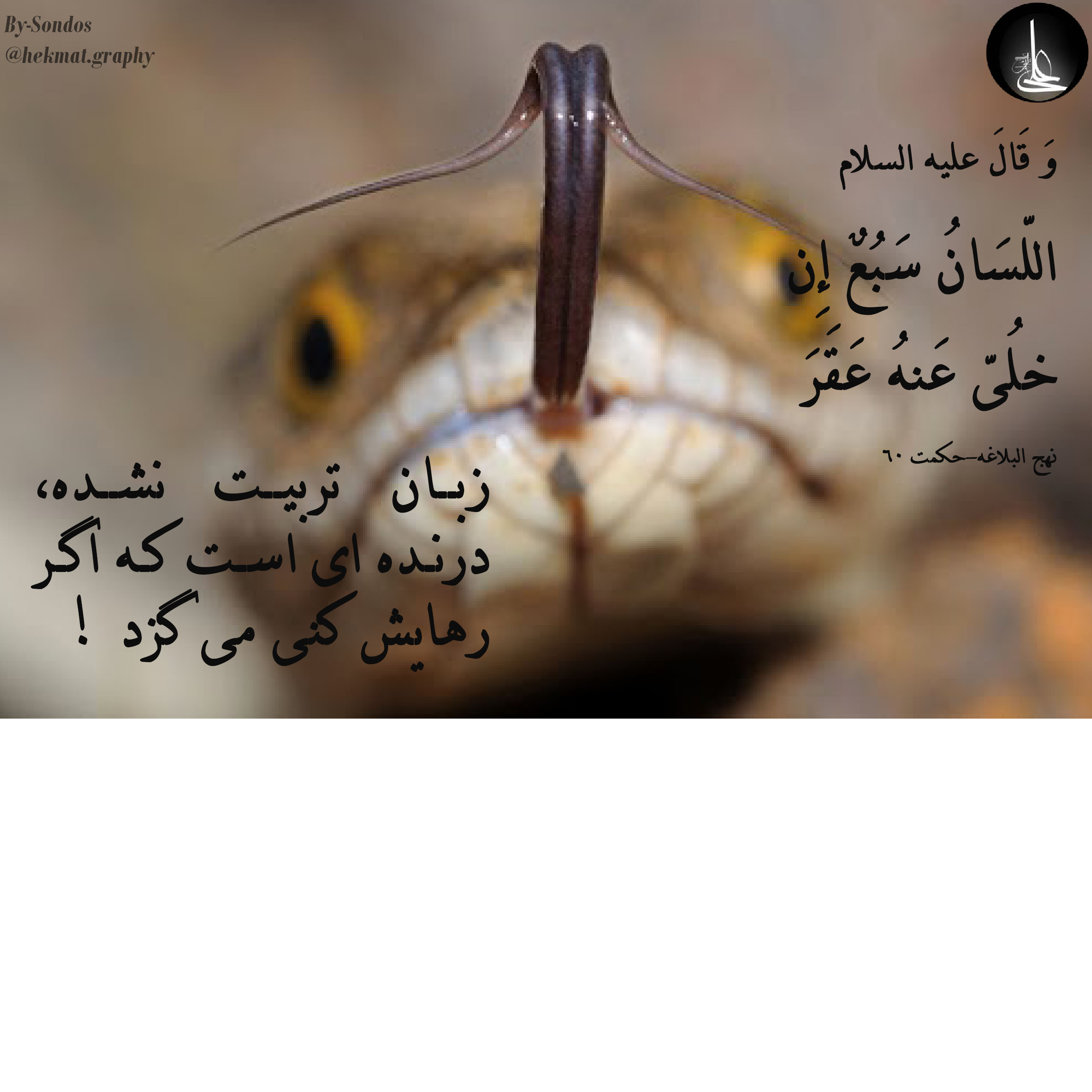

وَ قَالَ علیه السلام اللّسَانُ سَبُعٌ إِن خلُیّ عَنهُ عَقَرَ
و درود خدا بر او، فرمود: زبان تربیت نشده، درنده ای است که اگر رهایش کنی می گزد !
”.Imām Ali ibn Abū Tālib said: “The tongue is a beast; when it is let loose, it devours
? what is shia? What are the differences between Shia and Sunni Muslims
?what is shia

Shia Islam or Shi'ism is one of the two main branches of Islam. It holds that the Islamic prophet Muhammad designated Ali ibn Abi Talib as his successor and the Imam (leader) after him, most notably at the event of Ghadir Khumm, but was prevented from the caliphate as a result of the incident of Saqifah. This view primarily contrasts with that of Sunni Islam, whose adherents believe that Muhammad did not appoint a successor and consider Abu Bakr, who was appointed caliph by a group of Muslims at Saqifah, to be the first rightful caliph after Muhammad. A person observing Shia Islam is called a Shi'i.
Shia Islam is based on Muhammad's hadith (Ghadir Khumm). Shia consider Ali to have been divinely appointed as the successor to Muhammad, and as the first Imam. The Shia also extend this Imammah to Muhammad's family, the Ahl al-Bayt ("the people/family of the House"), and some individuals among his descendants, known as Imams, who they believe possess special spiritual and political authority over the community, infallibility and other divinely ordained traits. Although there are many Shia subsects, modern Shia Islam has been divided into two main groupings: Twelvers and Ismailis, with Twelver Shia being the largest and most influential group among Shia.
Shia Islam is the second largest branch of Islam: as of the late 2000s, Shia Muslims constituted 10–15% of all Muslims. Twelver Shia is the largest branch of Shia Islam, with 2012 estimates saying that 85% of Shias were Twelvers.

Shia Muslims believe that just as a prophet is appointed by God alone, only God has the prerogative to appoint the successor to his prophet. They believe God chose Ali to be Muhammad's successor, infallible, the first caliph (khalifah, head of state) of Islam. The Shia believe that Muhammad designated Ali as his successor by God's command (Eid Al Ghadir).
Ali was Muhammad's first-cousin and closest living male relative as well as his son-in-law, having married Muhammad's daughter Fatimah.
What are the differences between Shia and Sunni Muslims

The distinction between Shia and Sunni Islam began after the death of Islam's founder The Prophet Muhammad (PBUH&HP). Sunni Muslims believe that the Prophet Muhammad (PBUH&HP) did not name a successor to lead Muslims after his death while Shia Muslims deeply believe that the Prophet (PBUH&HP) Introduced Imam Ali (PBUH) for many times as his successor. Including in Qadeer Khom where the Prophet raised Imam Ali's hand then introduced him as the Imam for all Muslims and commanded Muslims (more than one hundred thousand Muslim) there to give Imam Ali allegiance.
As a result, Sunnis believe that people after the Prophet death elected a new leader. The first four caliphs, began the Sunni tradition, though no global Sunni leader has been in place since the fall of the Ottoman Empire.
In contrast, Shia Muslims followed Imam Ali ibn Abi-Talib (PBUH), the son-in-law of the Prophet Muhammad (PBUH&HP), as the rightful successor of Islam. While Sunni movement has developed into many sub-groups, Shia Muslims emphasize the special spiritual and political leadership of Imams (Muslim religious leaders) to Muslim nations.
In terms of size, Sunni Muslims are the largest group of adherents within Islam, with close to seventy percent of Muslims coming from Sunni heritage. However, in certain countries, including Azerbaijan, Bahrain, Yemen, Iran, and Iraq, Shia Islam is considered the majority groupand in many of other Islamic countries like Saudi Arabia, Afghanistan, Pakistan, Syria and many other countries are minority.
Spiritually, both groups practice the Five Pillars of Islam. All Muslims have to pray five prayers that Sunni Muslims pray these five prayers in five times each day (separately), while Shia Muslims pray them in three official times (together). Further, All of Shia and few of Sunni Scolars and Muslims accept the belief in the Twelfth Imam who has already been born but is hidden and will play a major role with his return in the last days.
Each group also has other unique traditions as part of its religious customs. For example, Shia Muslims observe the Day of Ashura, a day to commemorate the martyrdom of Imam Husayn ibn Ali (PBUH), grandson of the Prophet Muhammad (PBUH&HP).
Sunni Muslims follow the many Hadith that are considered authenticated sayings of the Prophet Muhammad (PBUH&HP) to help interpret the Glorious Qur'an. Shia Muslims do not accept the authority of the six major Hadith collections of Sunni Islam but instead follow the Hadiths that is narrated from infallible twelve Imams.
In a religion as large as Islam, many additional subgroups also exist within Sunni and Shia Islam. These differences note some of the major distinctions. Yet all Muslims continue to follow Allah as the one true God, the Five Pillars of Islam, and share many important spiritual and cultural customs related to their religions.
Interestingly, both Sunni and Shia Islam accept the Muslim teaching that Jesus (PBUH) is one of many prophets in Islam. Yet the Bible (composed of Old and New Testaments) is the book in which many of the historic teachings of Moses and Jesus (PBUTH) can be found.

en.al-shia.org
نهج البلاغه حکمت 59
نهج البلاغه
حکمت 59
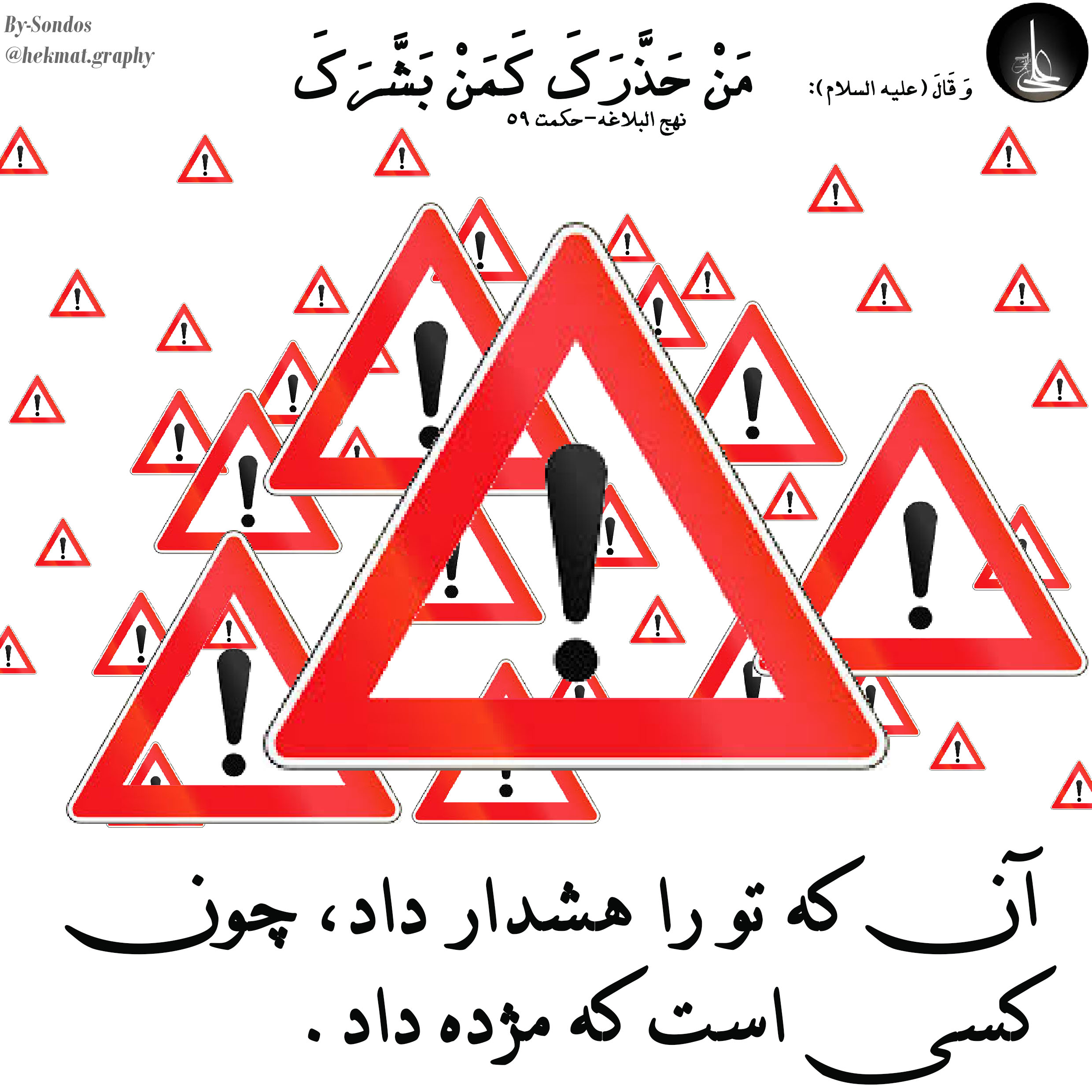

وَ قَالَ علیه السلام مَن حَذّرَکَ کَمَن بَشّرَکَ
و درود خدا بر او، فرمود: آن که تو را هشدار داد، چون کسی است که مژده داد .
Imām Ali ibn Abū Tālib said:
One who warns you is like one who gives you glad tidings .(of safety
نهج البلاغه حکمت 58
نهج البلاغه
حکمت 58
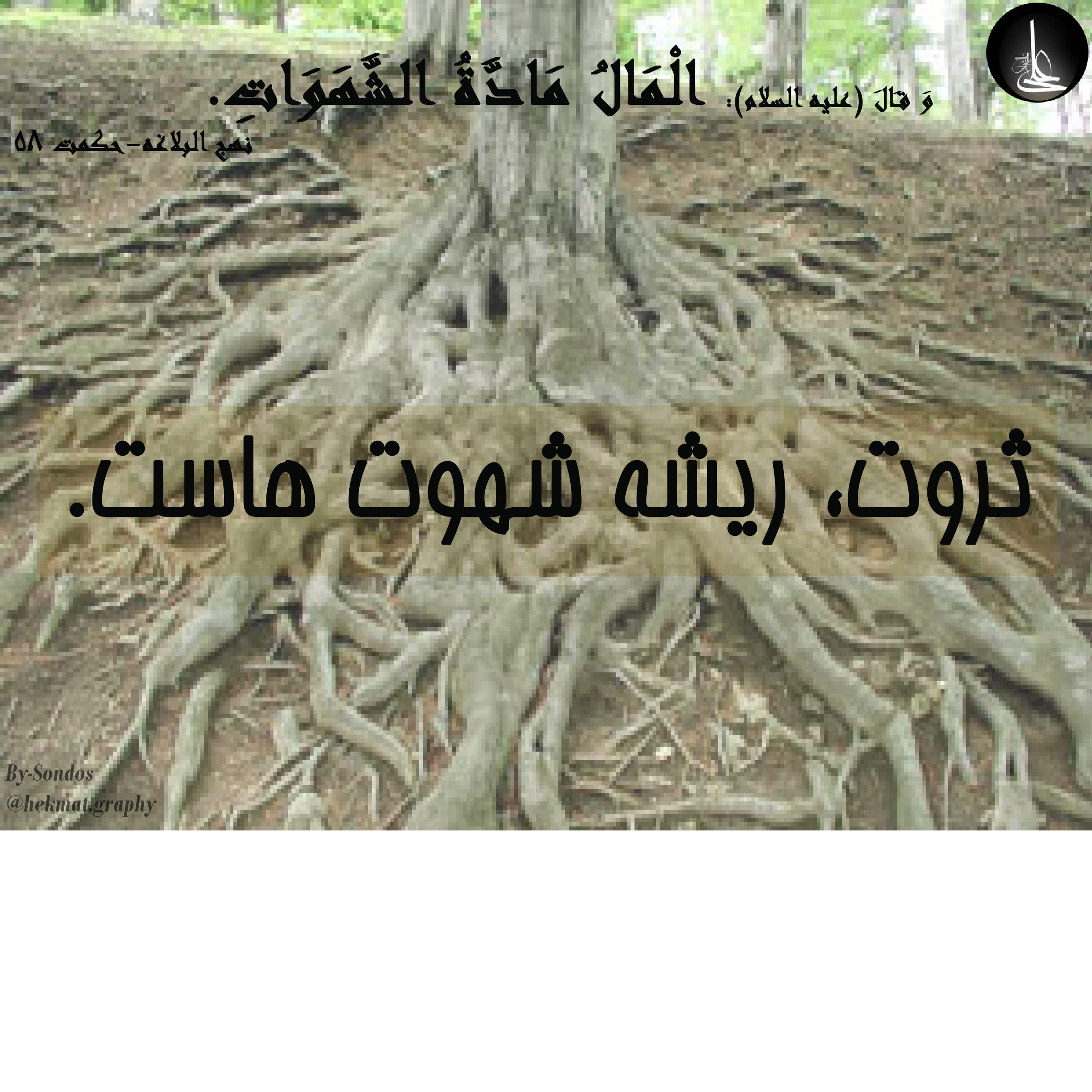

وَ قَالَ علیه السلام المَالُ مَادّهُ الشّهَوَاتِ
و درود خدا بر او، فرمود: ثروت، ریشه شهوت هاست .
”.Imām Ali ibn Abū Tālib said: “Wealth is the substance of passions
نهج البلاغه حکمت 57
نهج البلاغه
حکمت 57
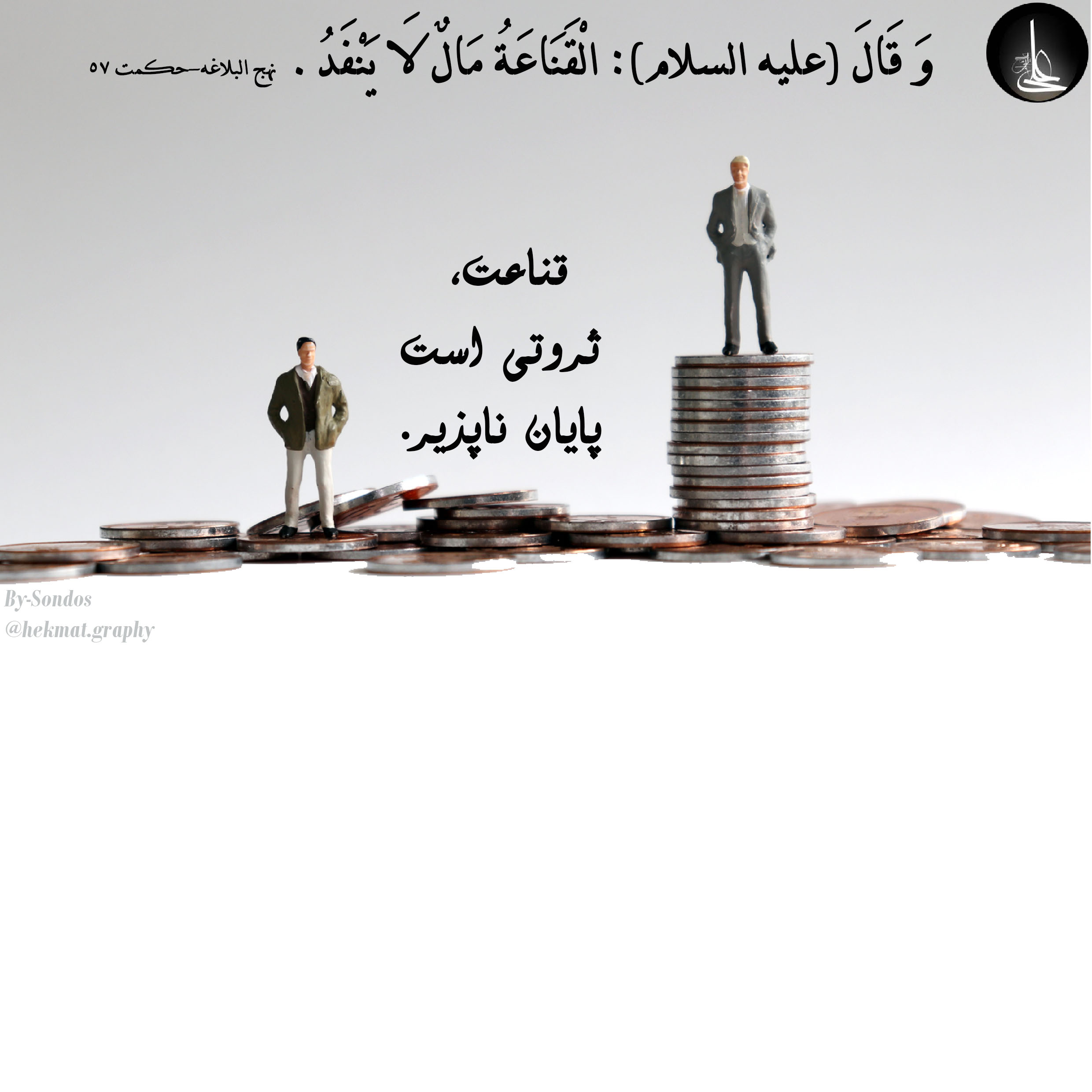

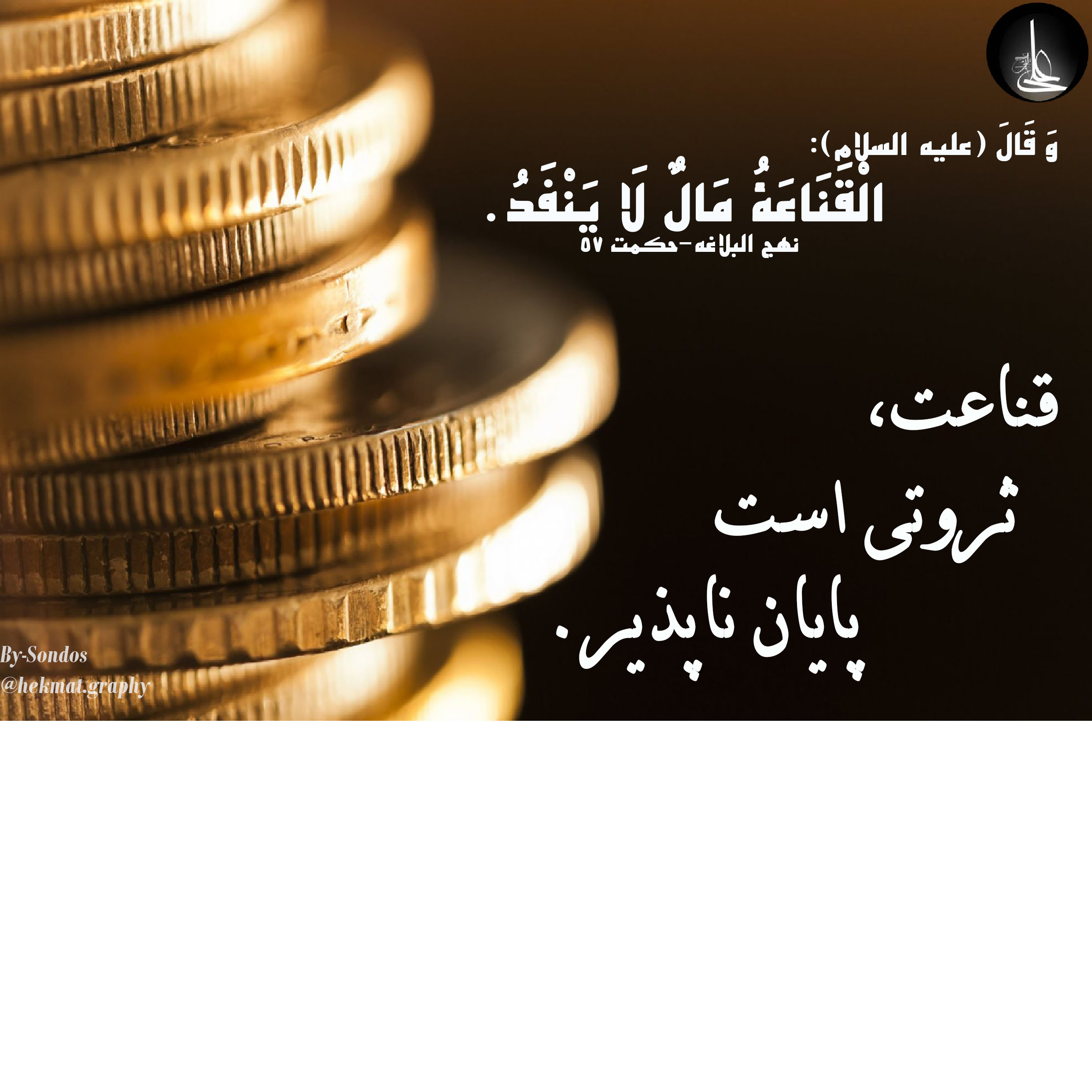
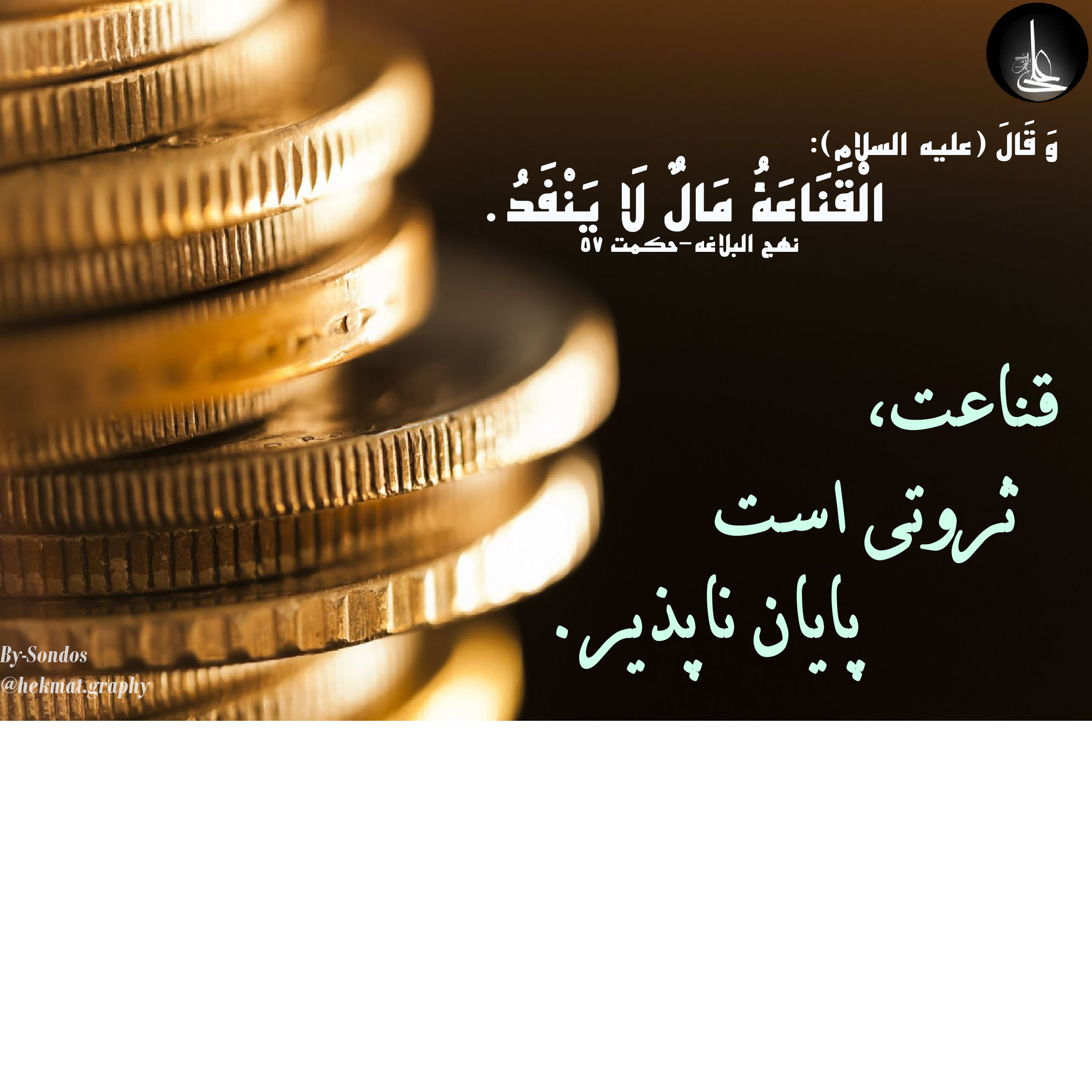
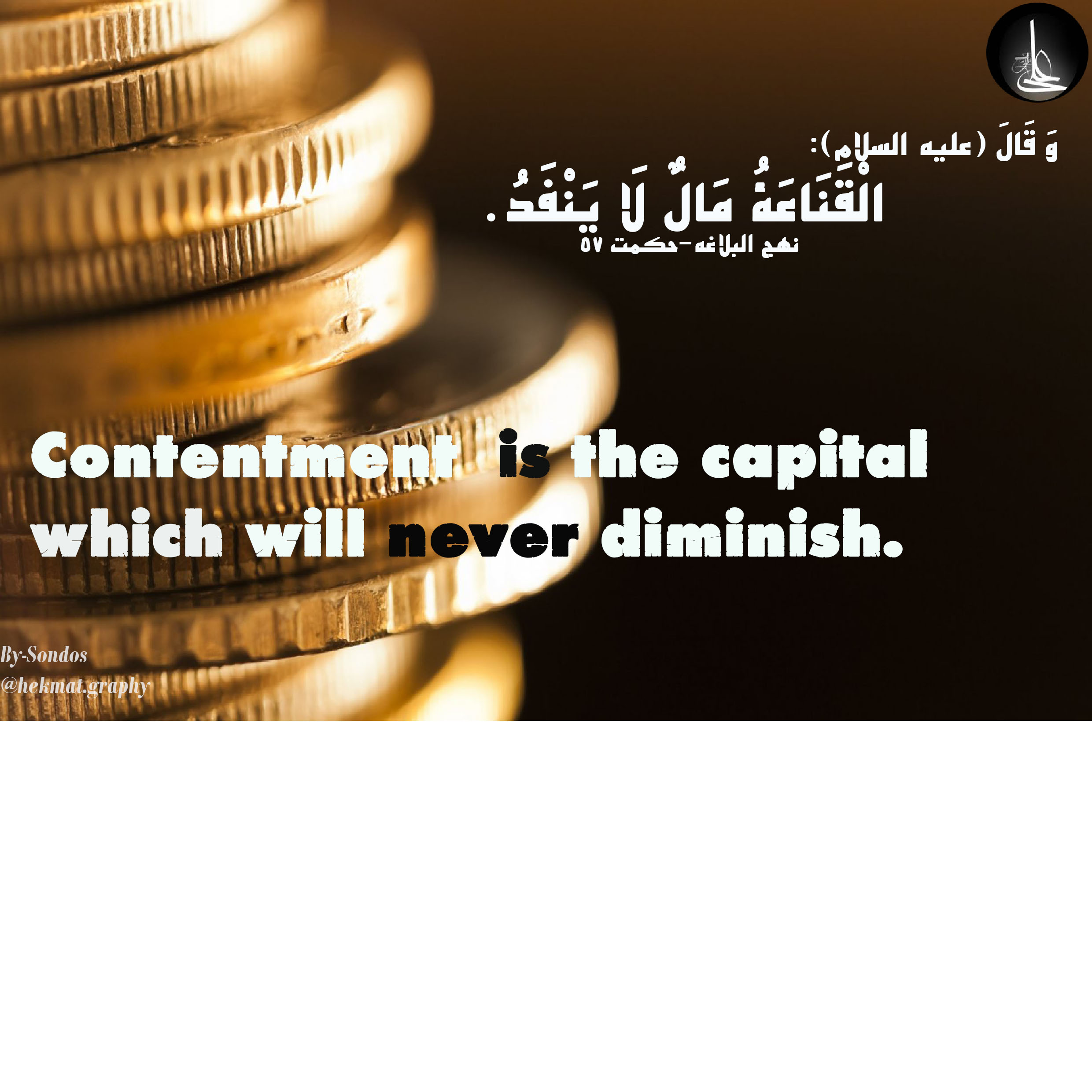
وَ قَالَ علیه السلام القَنَاعَهُ مَالٌ لَا یَنفَدُ
و درود خدا بر او، فرمود: قناعت، ثروتی است پایان ناپذیر .
Imām Ali ibn Abū Tālib said: “Contentment is wealth that never diminishes."
نهج البلاغه حکمت 54
نهج البلاغه
حکمت 54

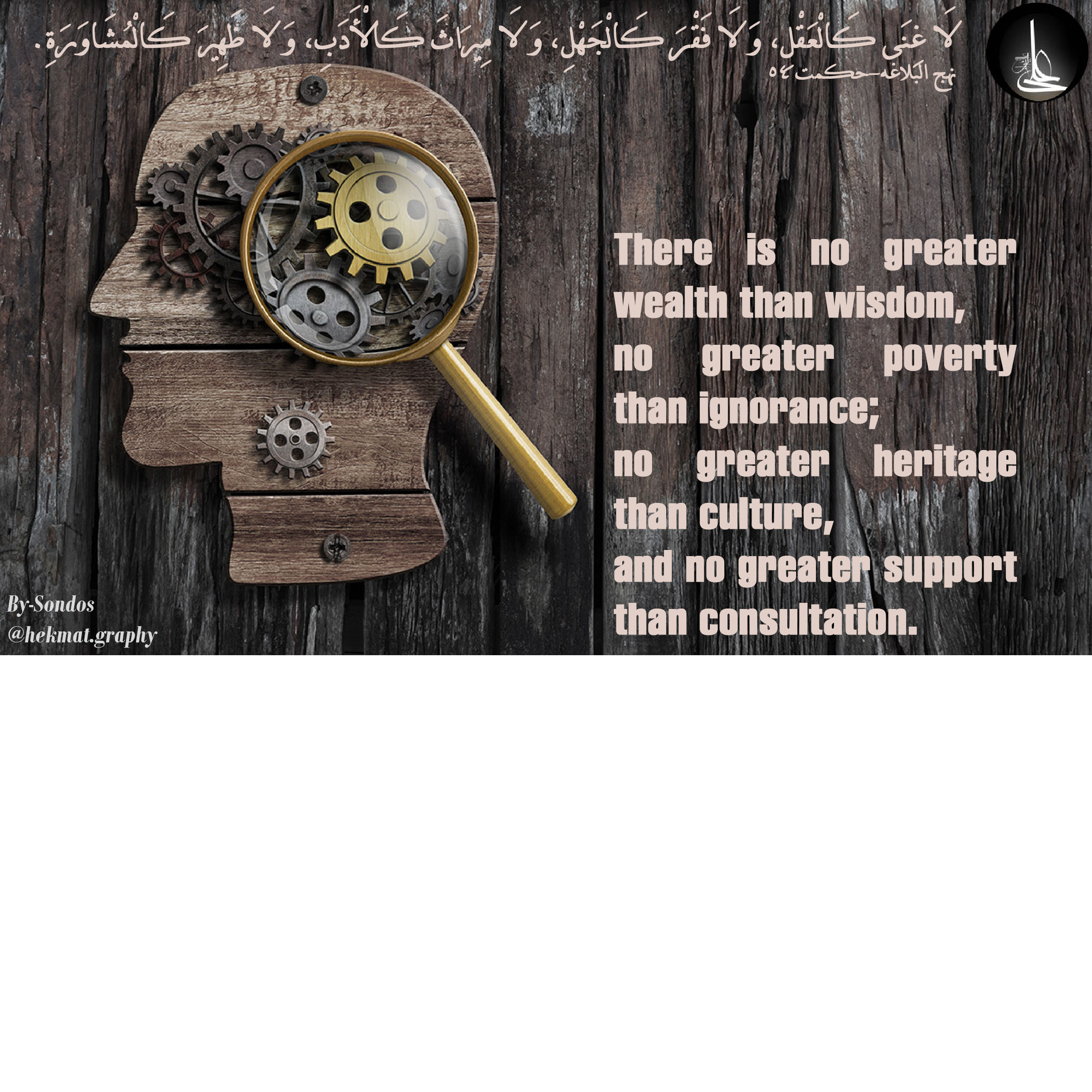
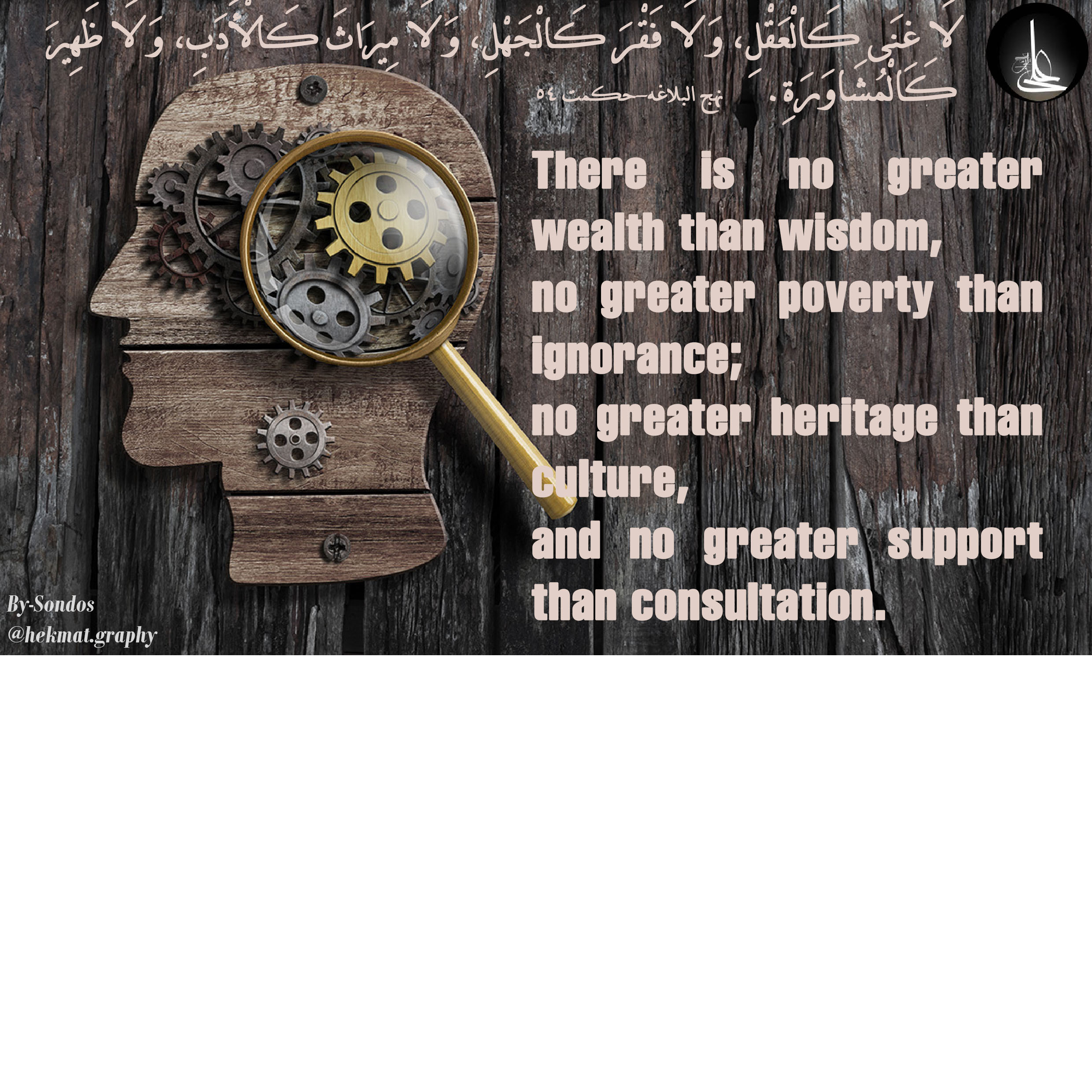

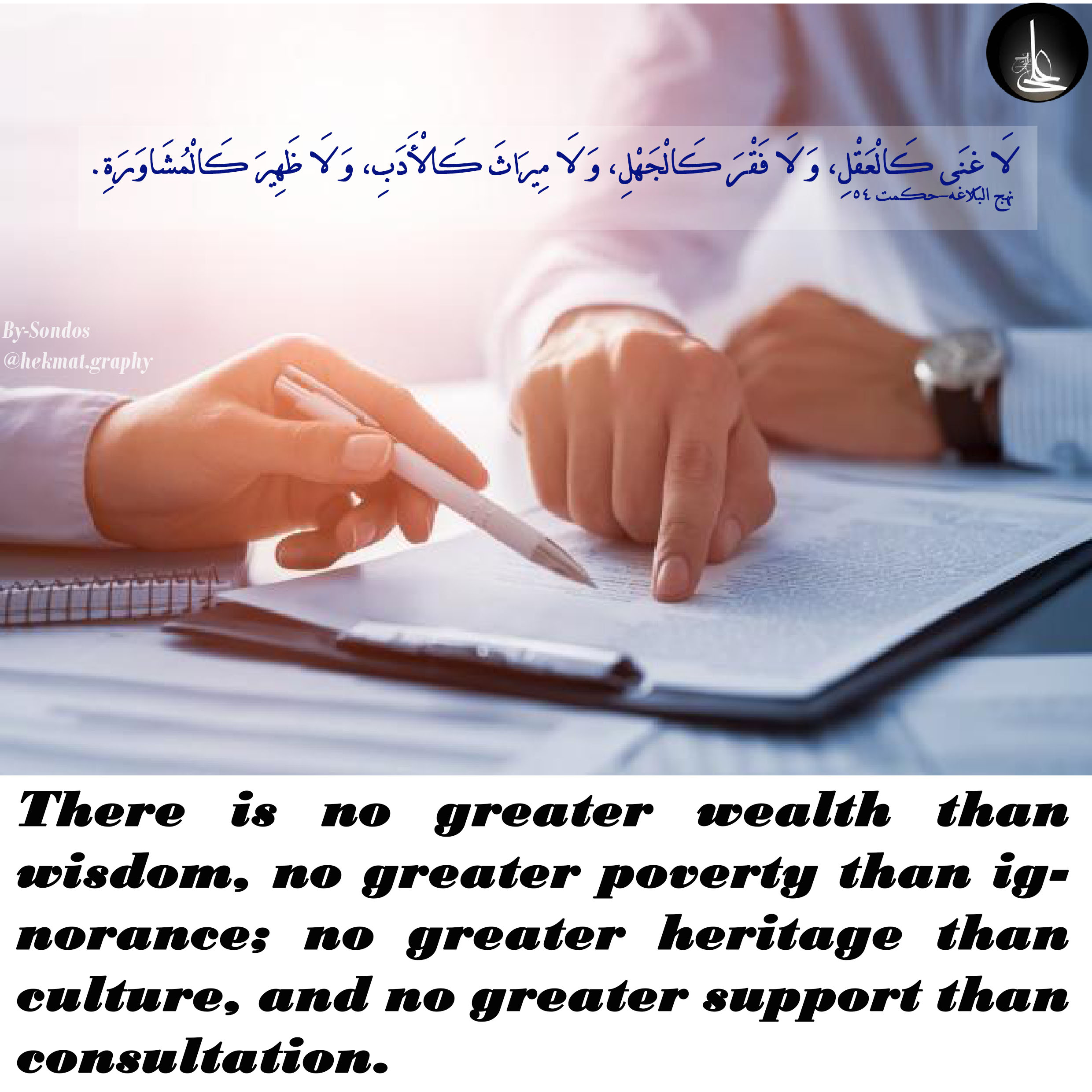
وَ قَالَ علیه السلام لَا غِنَی کَالعَقلِ وَ لَا فَقرَ کَالجَهلِ وَ لَا مِیرَاثَ کَالَأدَبِ وَ لَا ظَهِیرَ کَالمُشَاوَرَهِ
و درود خدا بر او، فرمود: هیچ ثروتی چون عقل، و هیچ فقری چون نادانی نیست. هیچ ارثی چون ادب و هیچ پشتیبانی چون مشورت نیست .
Imām Ali ibn Abū Tālib said: “There is no wealth like wisdom, no destitution like ignorance, no inheritance like refinement and no support like consultation.
نهج البلاغه حکمت 53
نهج البلاغه
حکمت 53






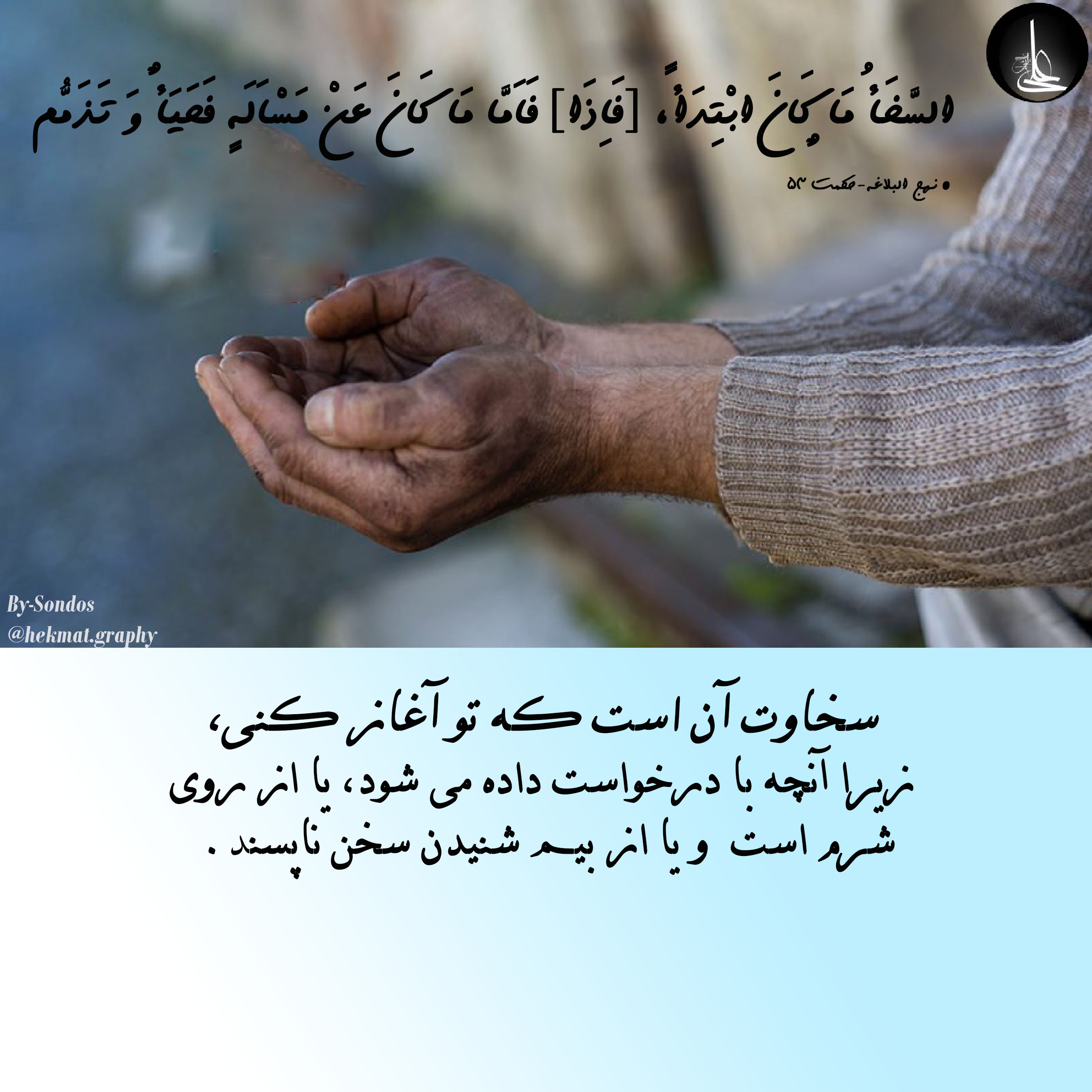

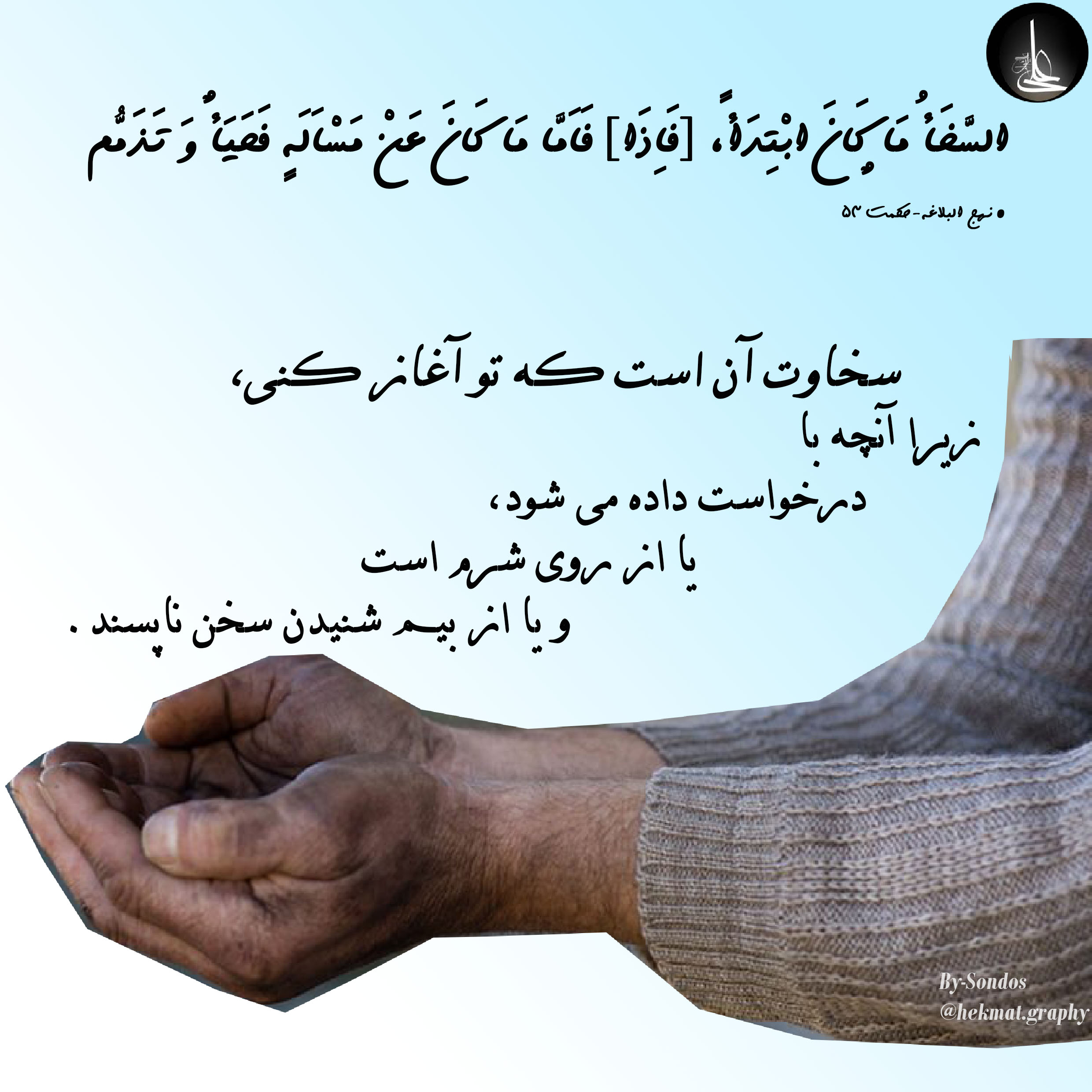

وَ قَالَ علیه السلام السّخَاءُ مَا کَانَ ابتِدَاءً فَأَمّا مَا کَانَ عَن مَسأَلَهٍ فَحَیَاءٌ وَ تَذَمّمٌ
و درود خدا بر او، فرمود: سخاوت آن است که تو آغاز کنی، زیرا آنچه با درخواست داده می شود یا از روی شرم و یا از بیم
شنیدن سخن ناپسند است .
Imām Ali ibn Abū Tālib said: “Generosity is that which is by one's own initiative because giving on being asked is either due to one's esteem or to avoid rebuke.
نهج البلاغه حکمت 52
نهج البلاغه
حکمت 52
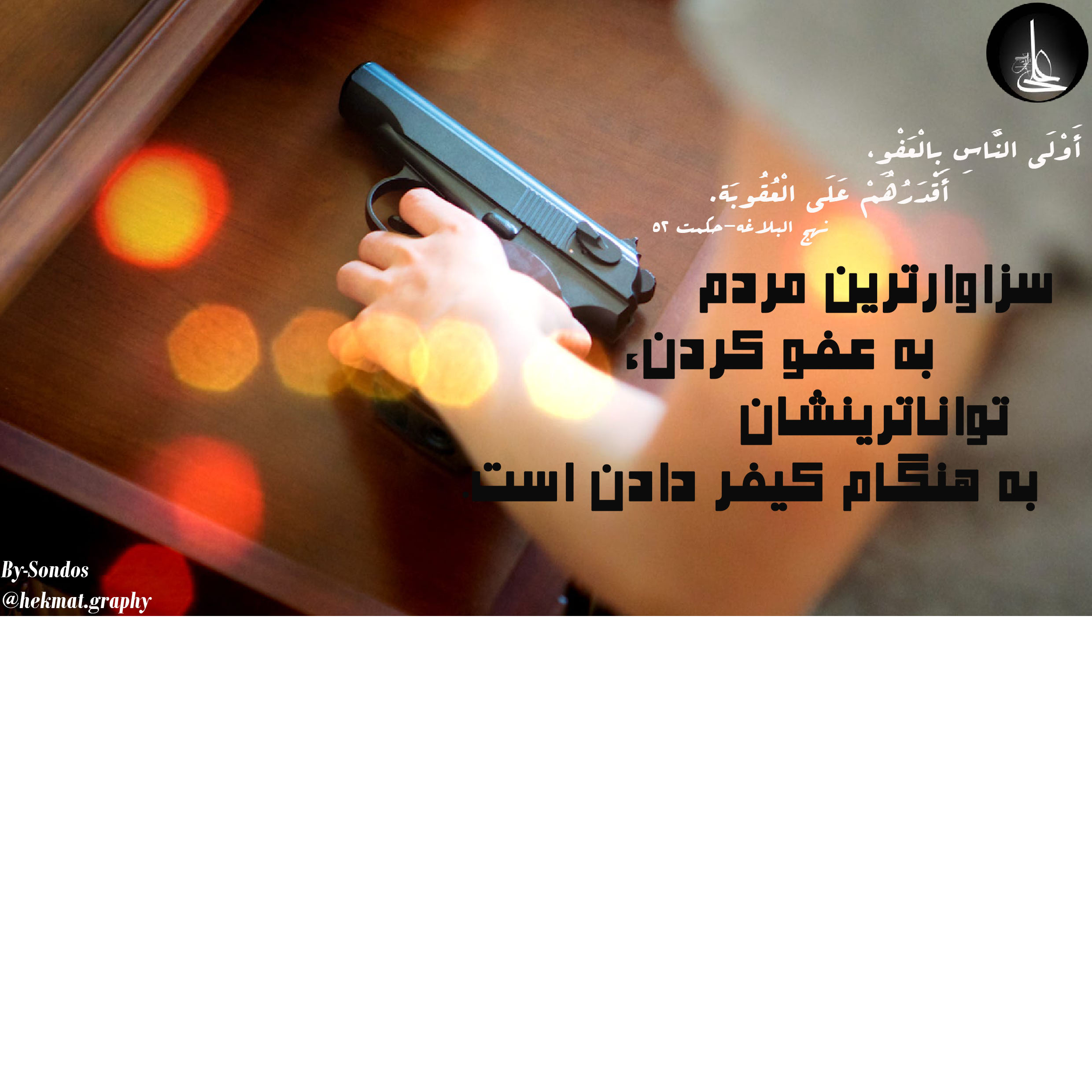

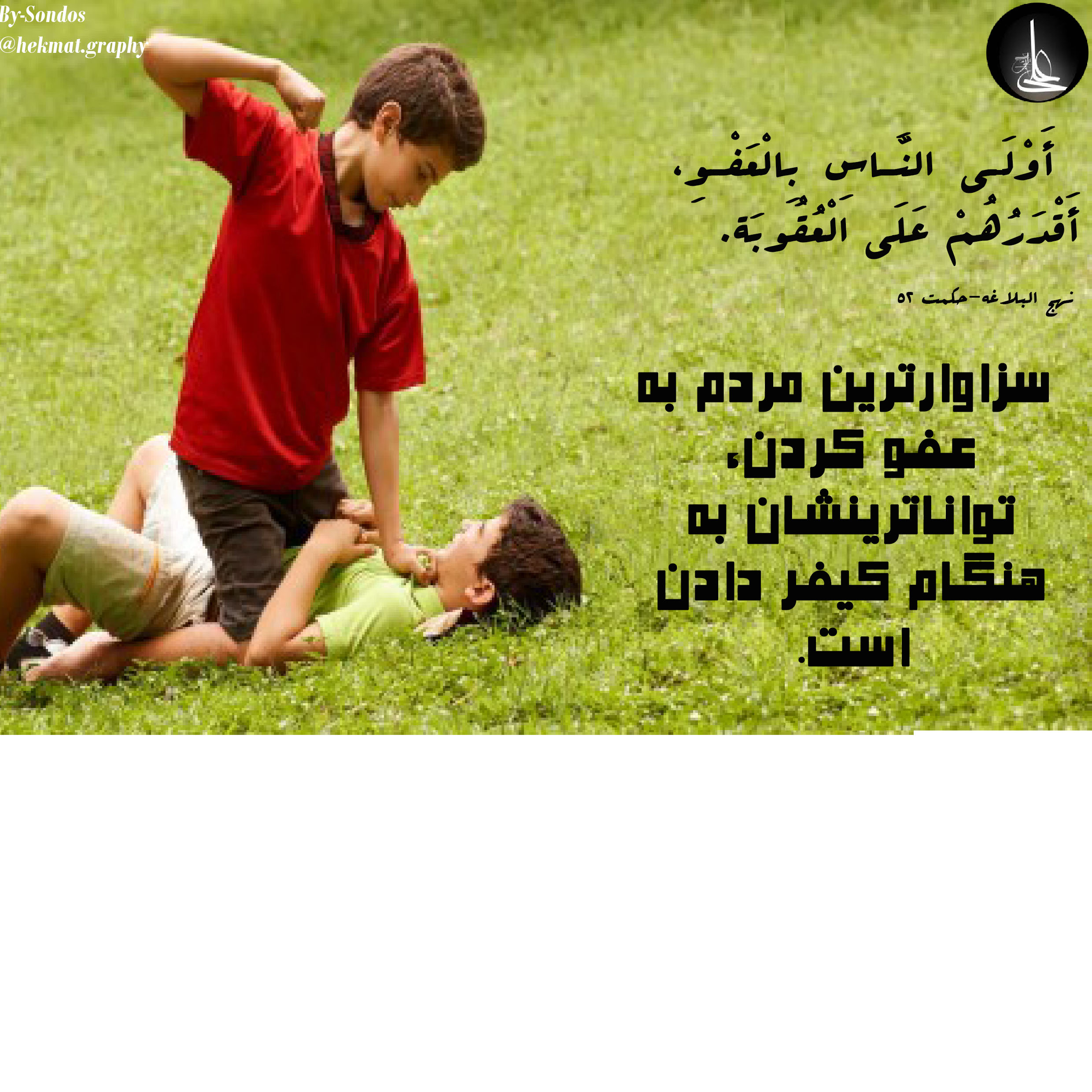
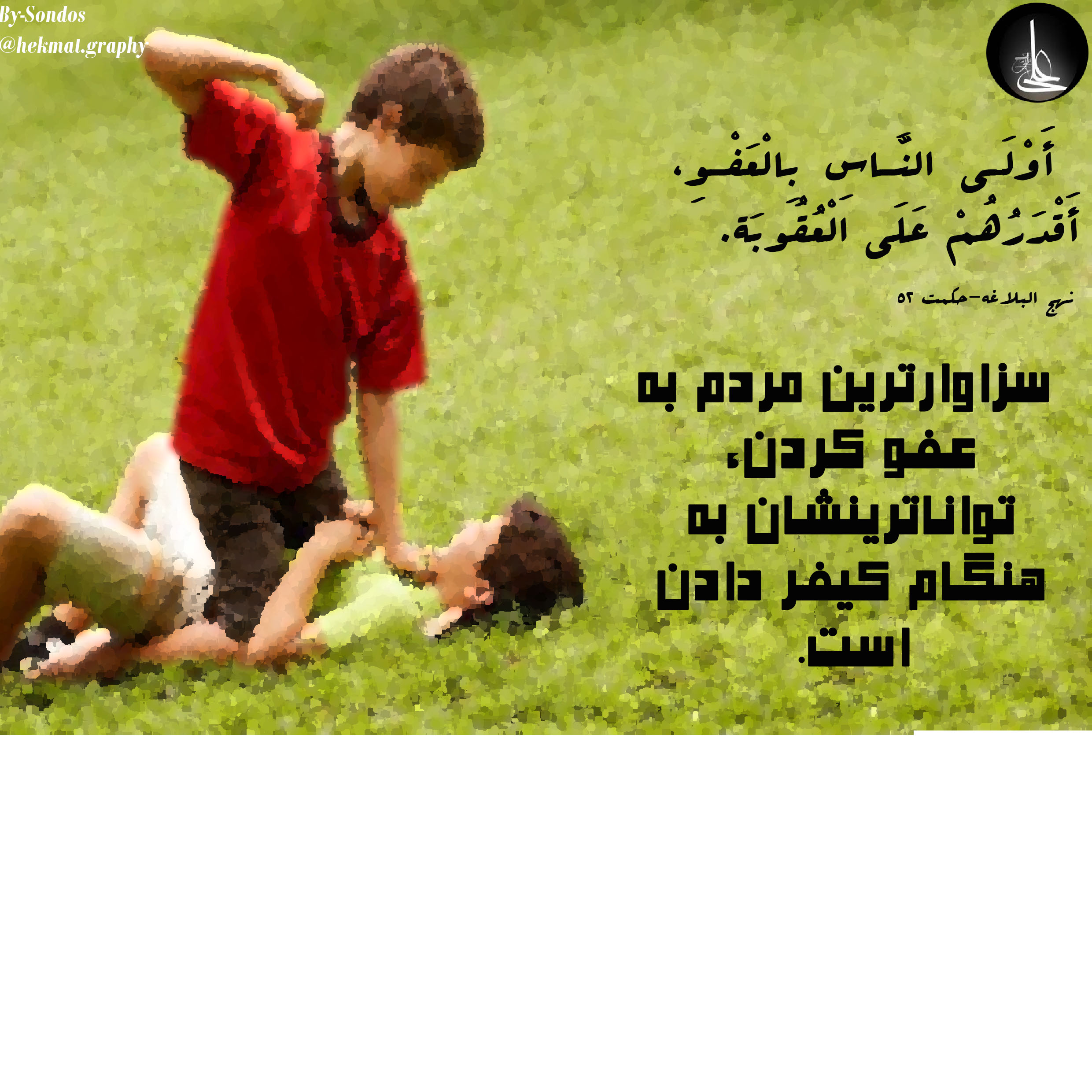

وَ قَالَ علیه السلام أَولَی النّاسِ بِالعَفوِ أَقدَرُهُم عَلَی العُقُوبَهِ
و درود خدا بر او، فرمود: سزاوارترین مردم به عفو کردن، تواناترینشان به هنگام کیفر دادن است .
Imām Ali ibn Abū Tālib said:
The most capable of pardoning is one who is the ablest to punish.
نهج البلاغه حکمت 51
نهج البلاغه
حکمت 51
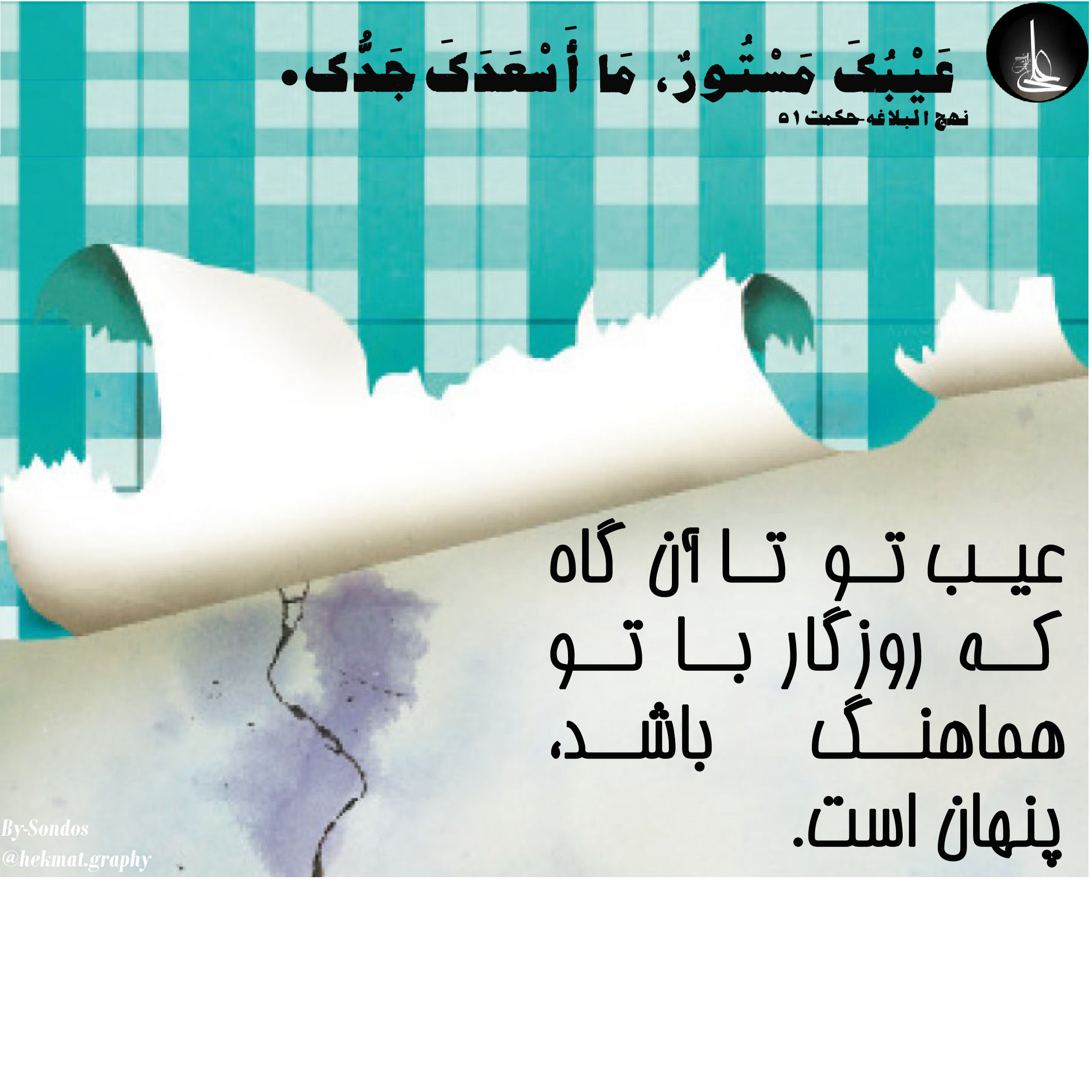

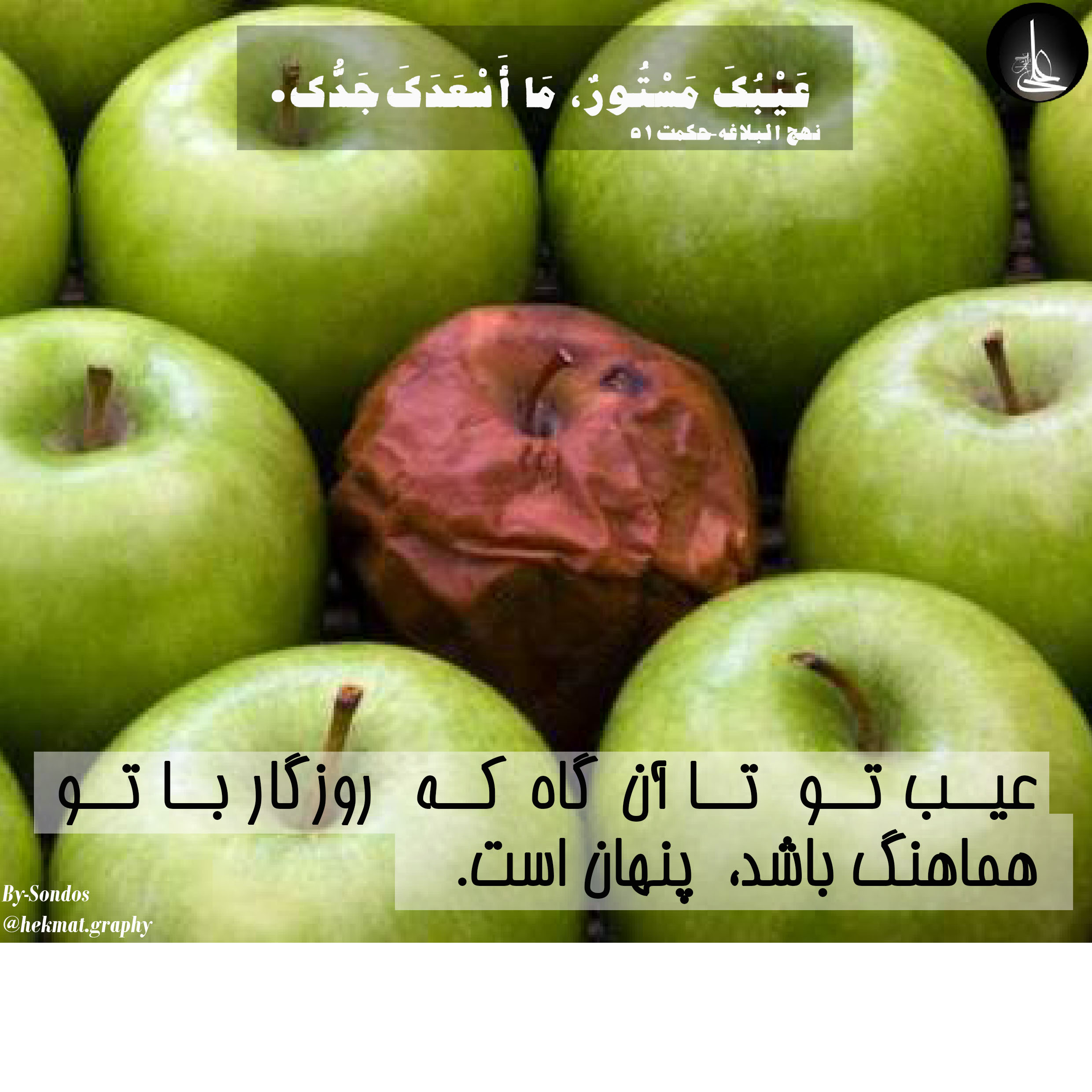



وَ قَالَ علیه السلام عَیبُکَ مَستُورٌ مَا أَسعَدَکَ جَدّکَ
و درود خدا بر او، فرمود: عیب تو تا آن گاه که روزگار با تو هماهنگ باشد، پنهان است .
Imām Ali ibn Abū Tālib said the following:
So long as your status is good, your defects will remain covered.
نهج البلاغه حکمت 50
نهج البلاغه
حکمت 50
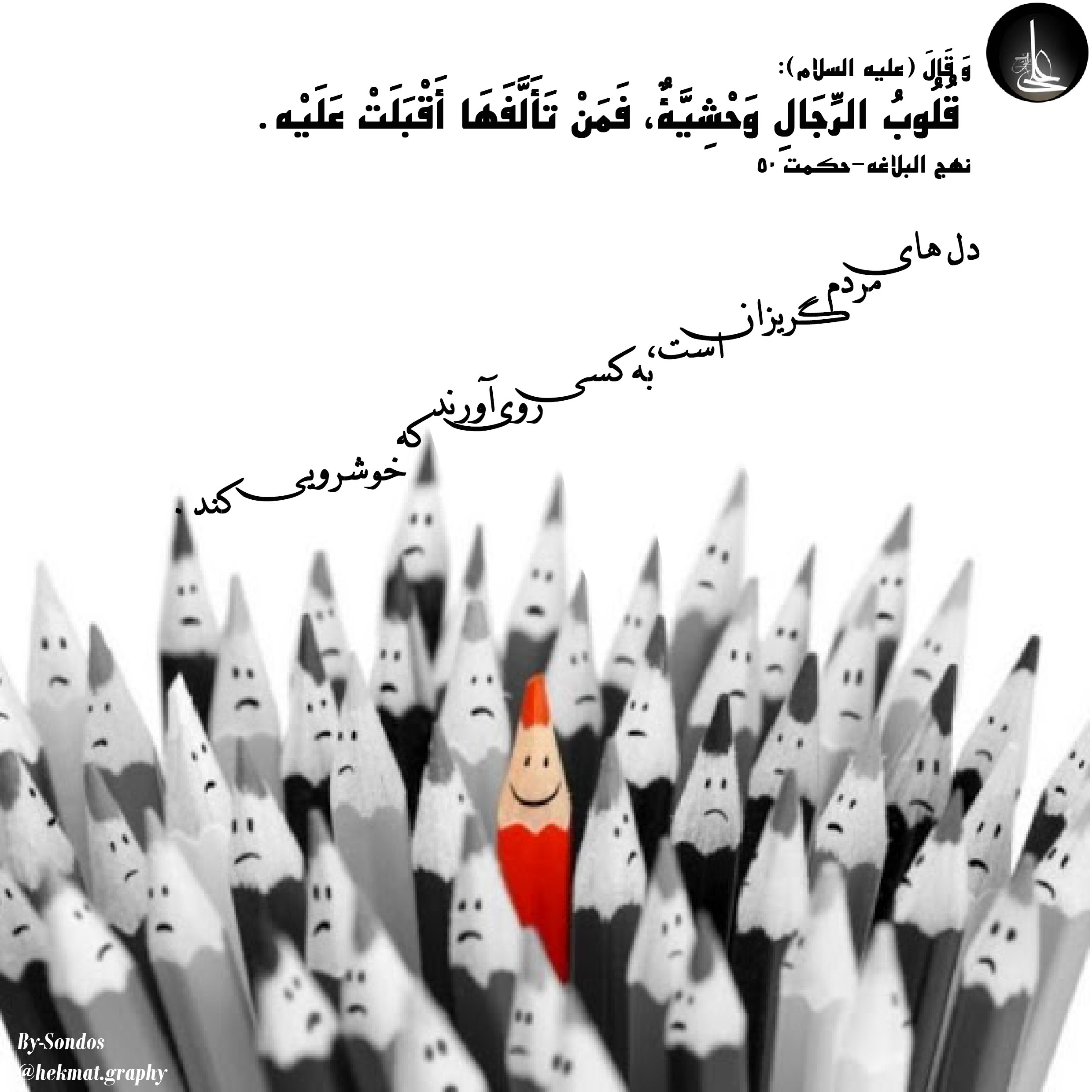

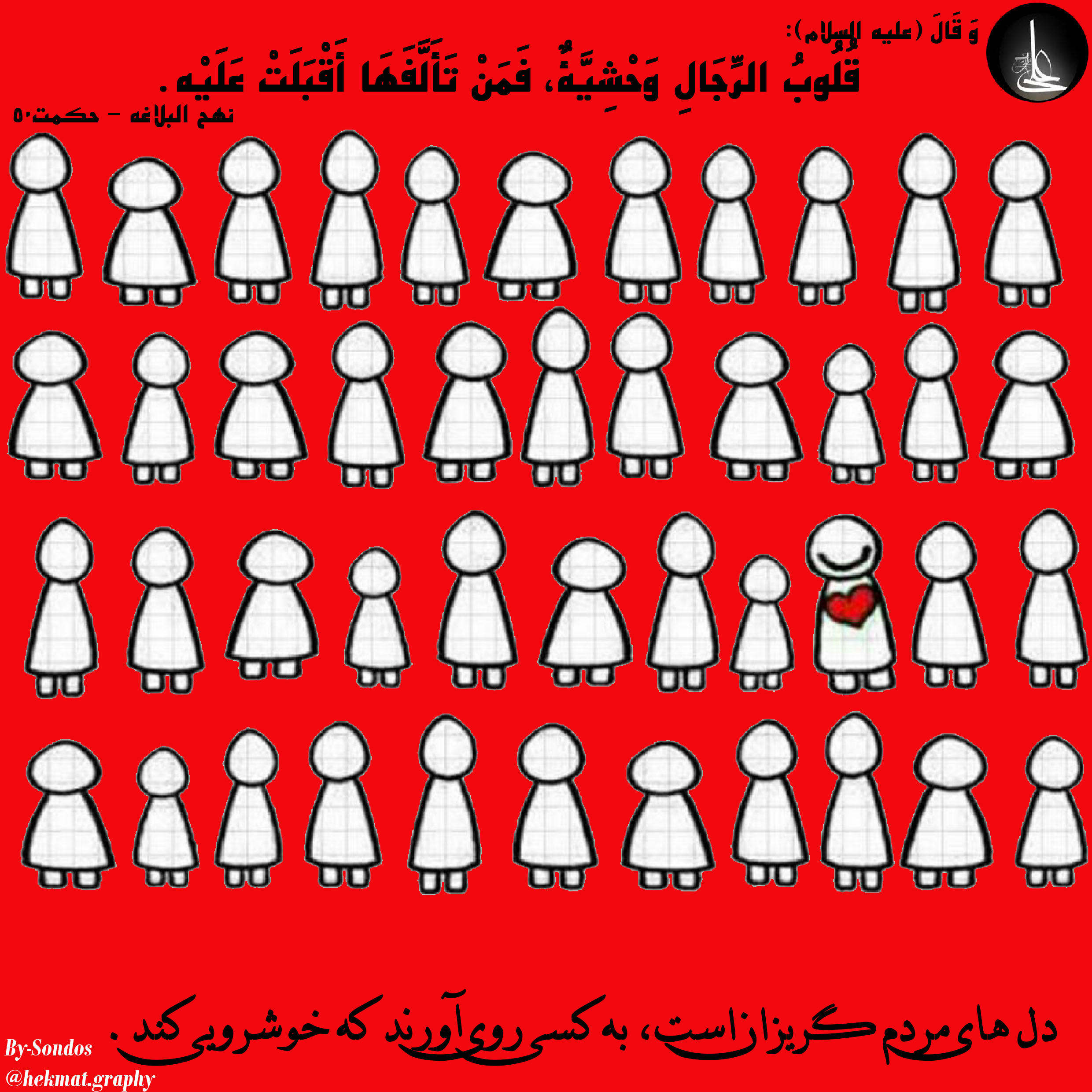
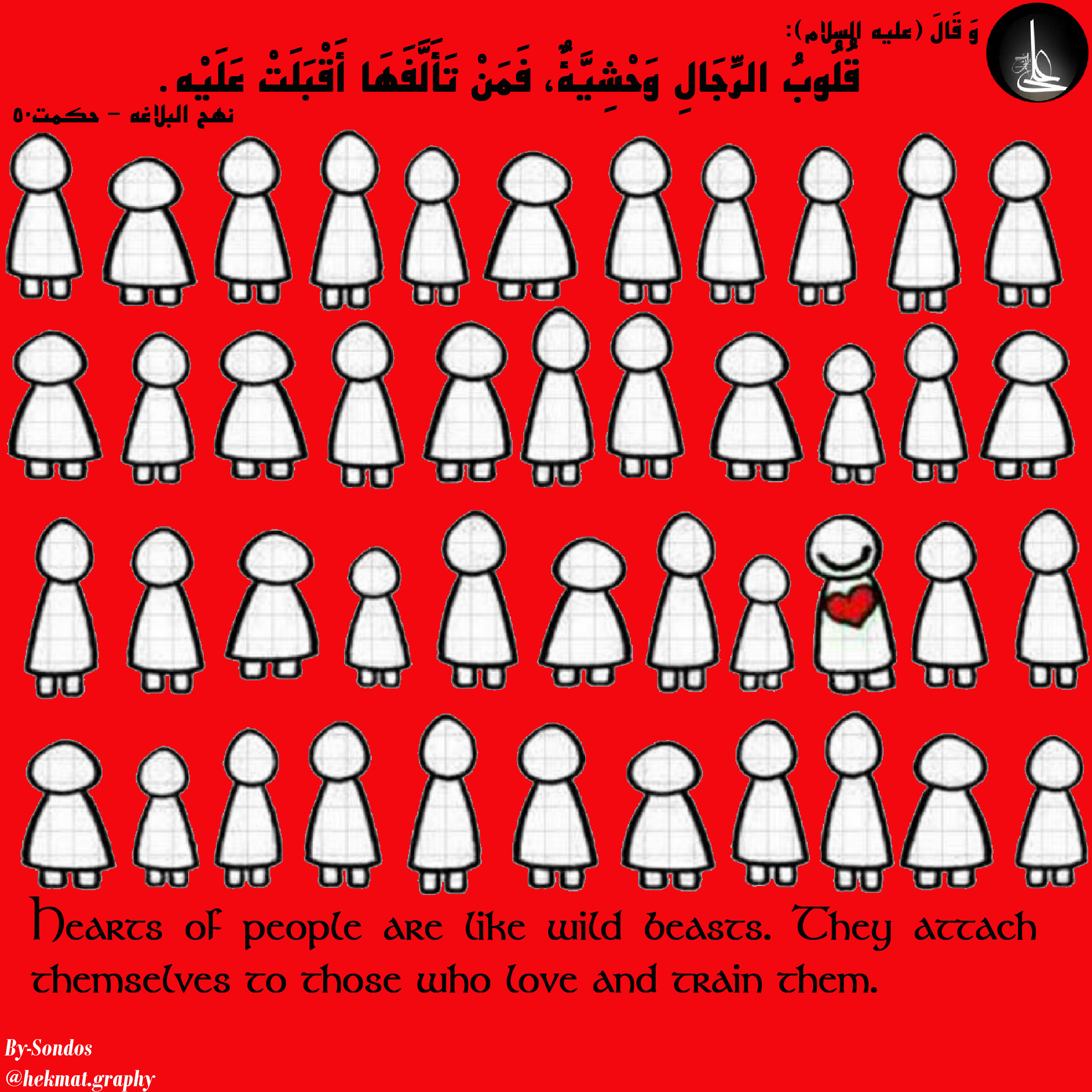


وَ قَالَ علیه السلام قُلُوبُ الرّجَالِ وَحشِیّهٌ فَمَن تَأَلّفَهَا أَقبَلَت عَلَیهِ
دل های مردم گریزان است، به کسی روی آورند که خوشرویی کند .
Imām Ali ibn Abū Tālib said the following: “People's hearts are like wild beasts. If someone tries to tame them, they will pounce back on him.

